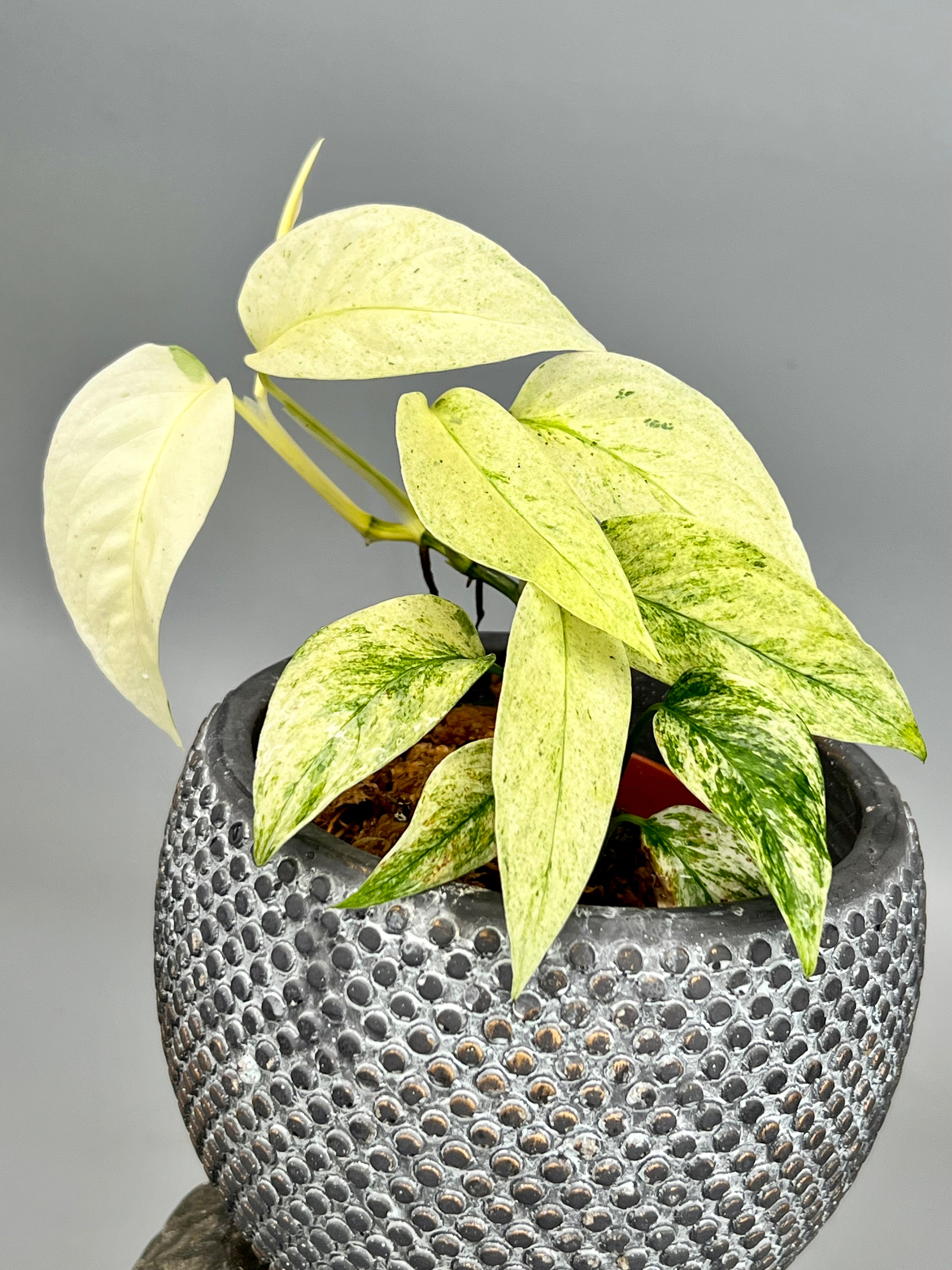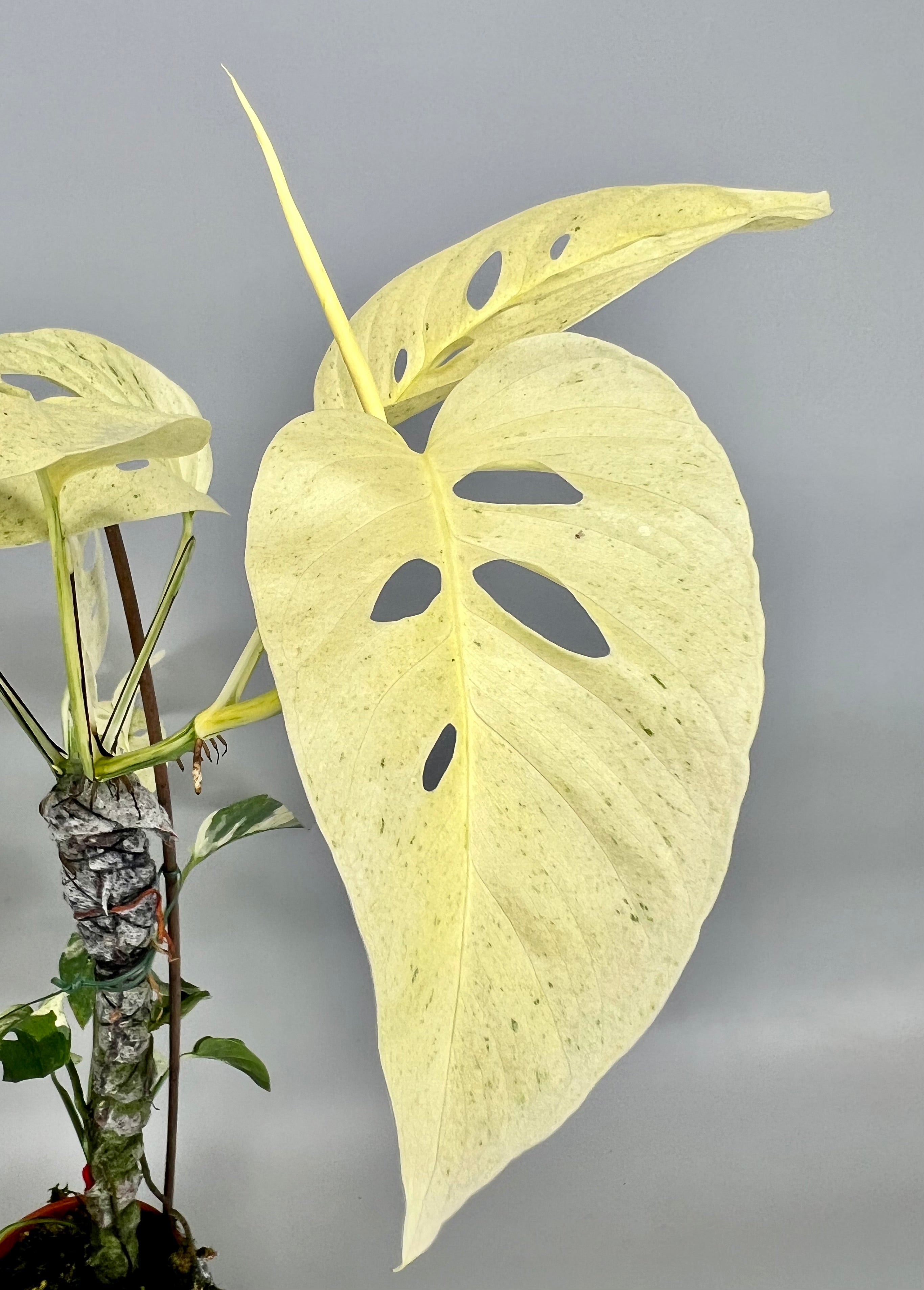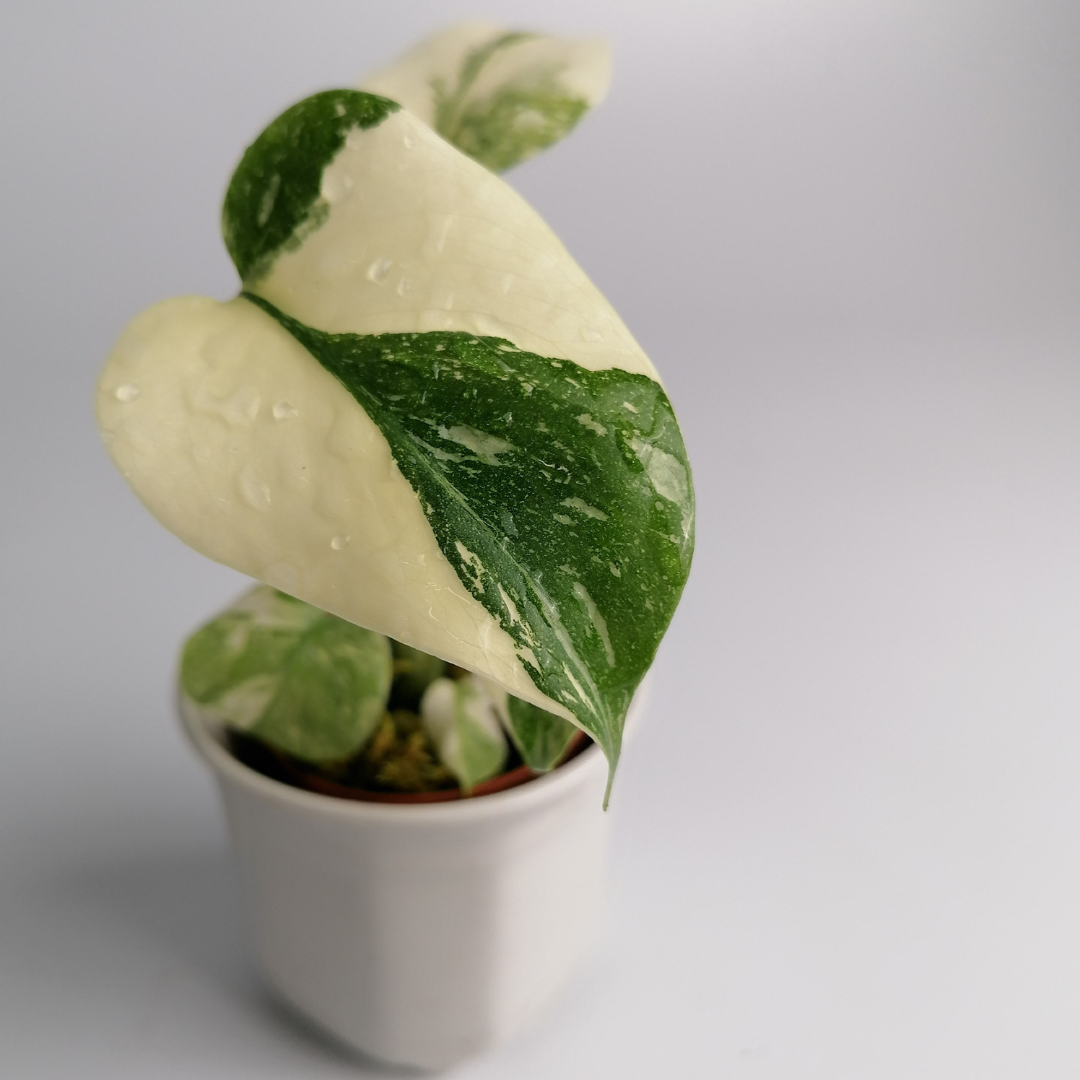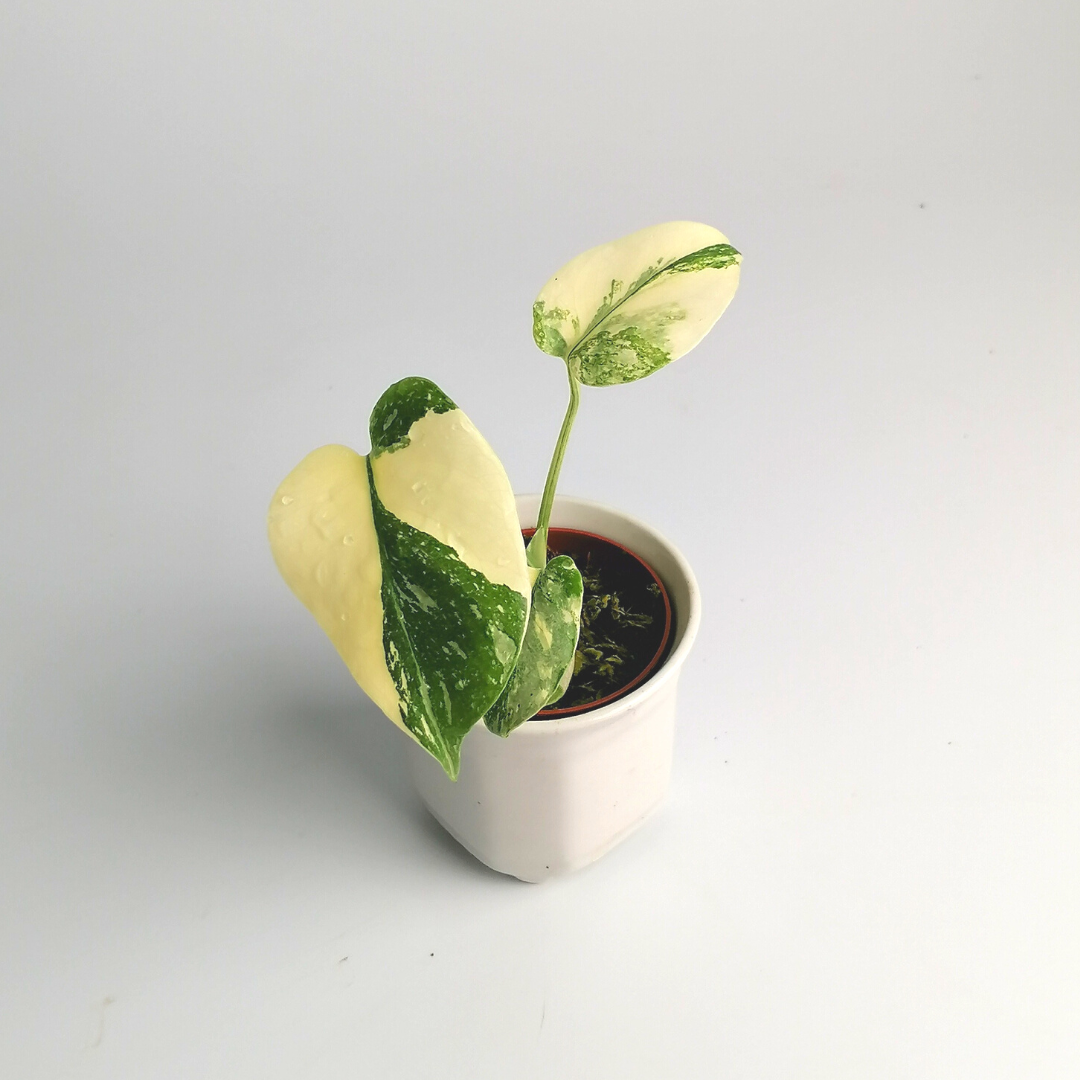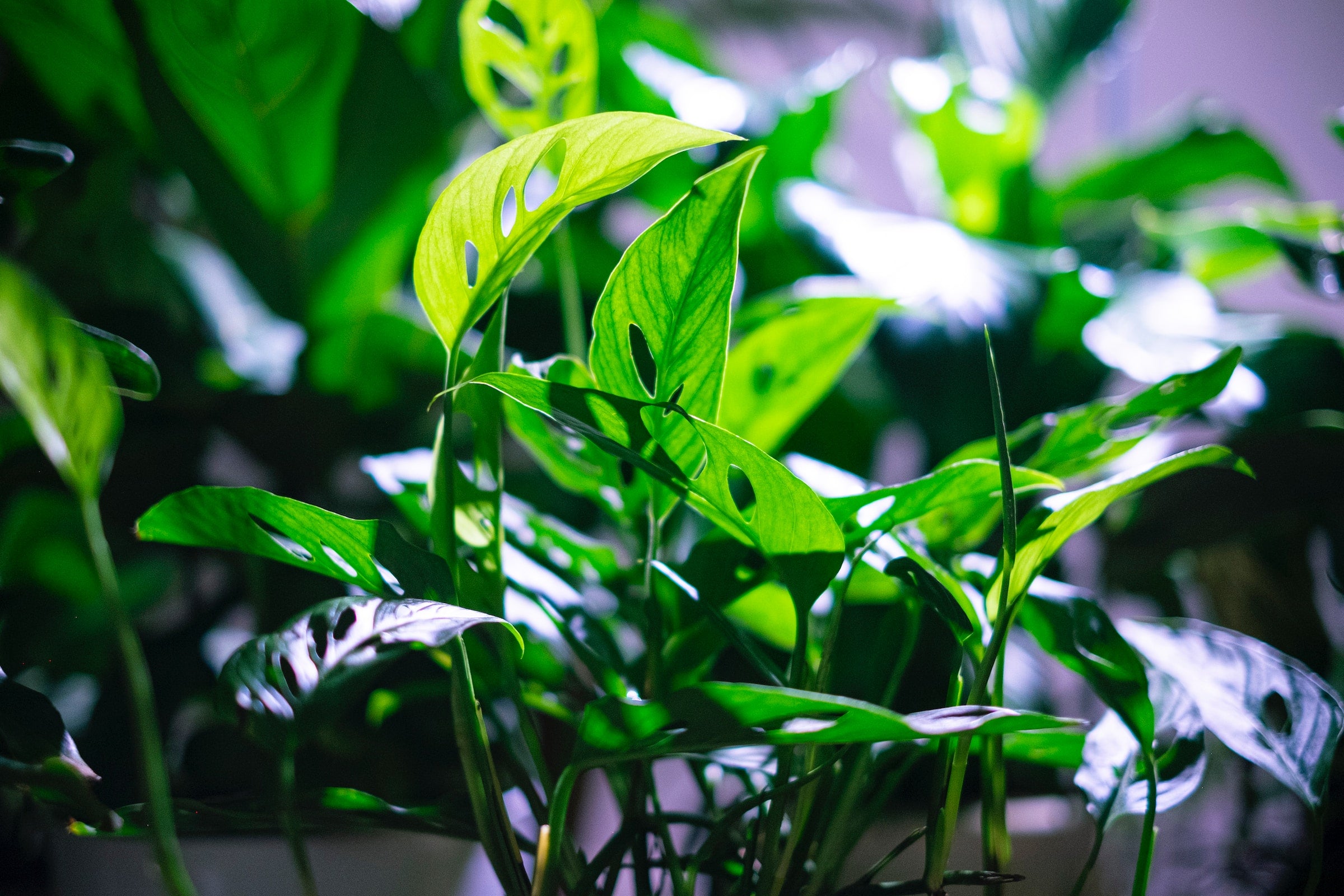
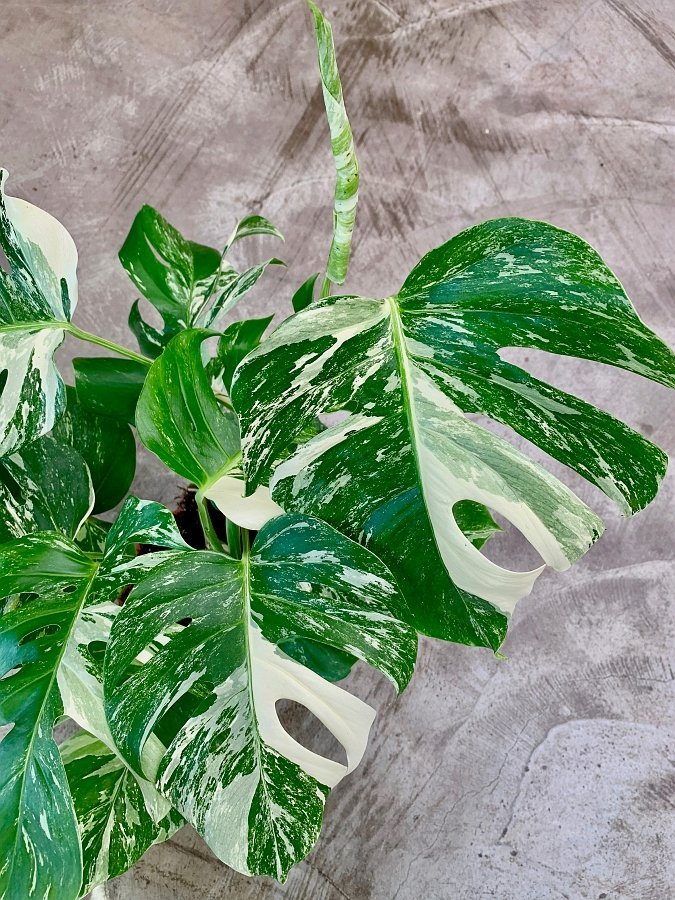
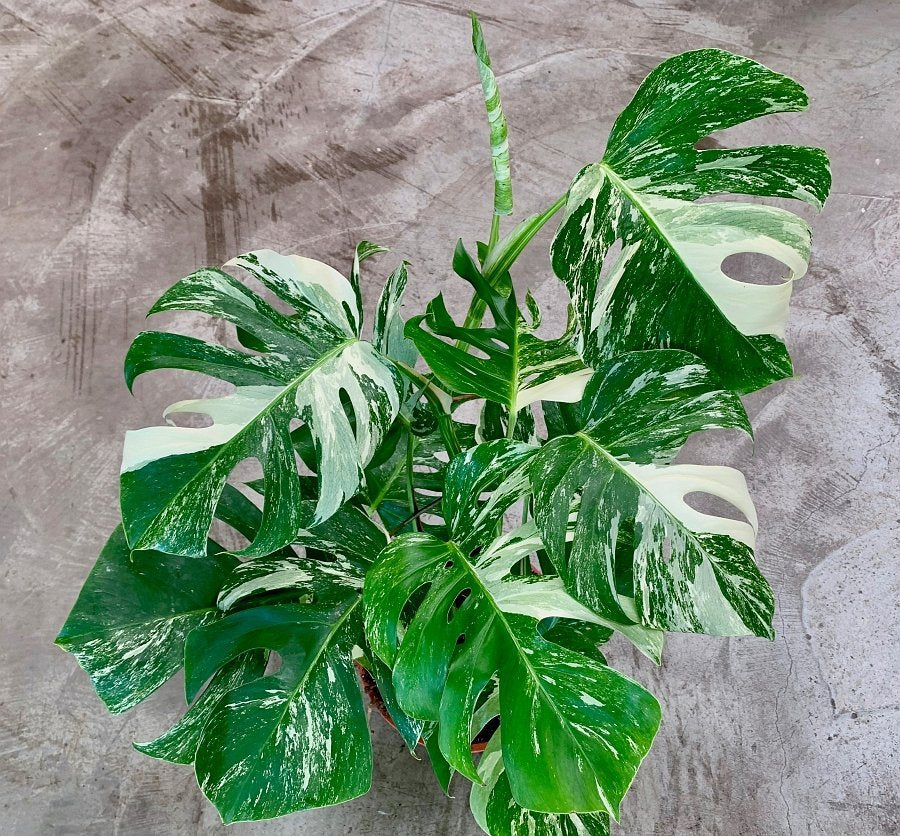
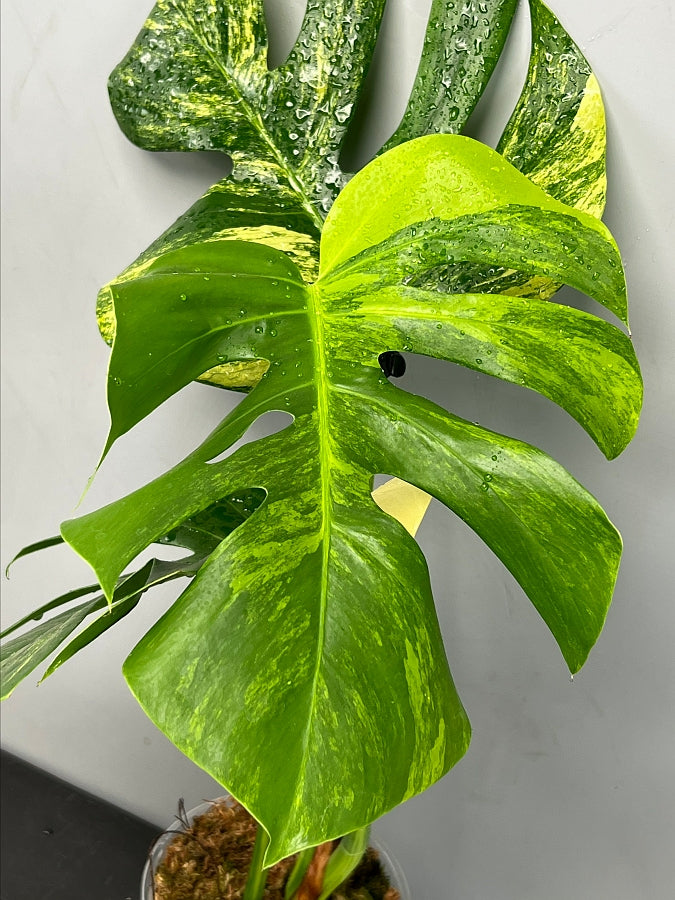
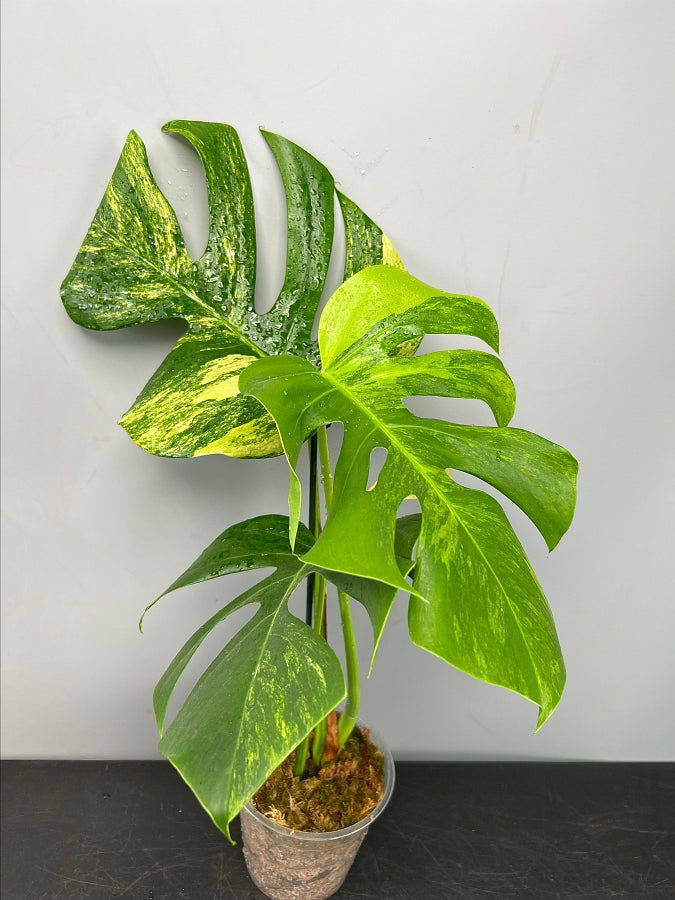
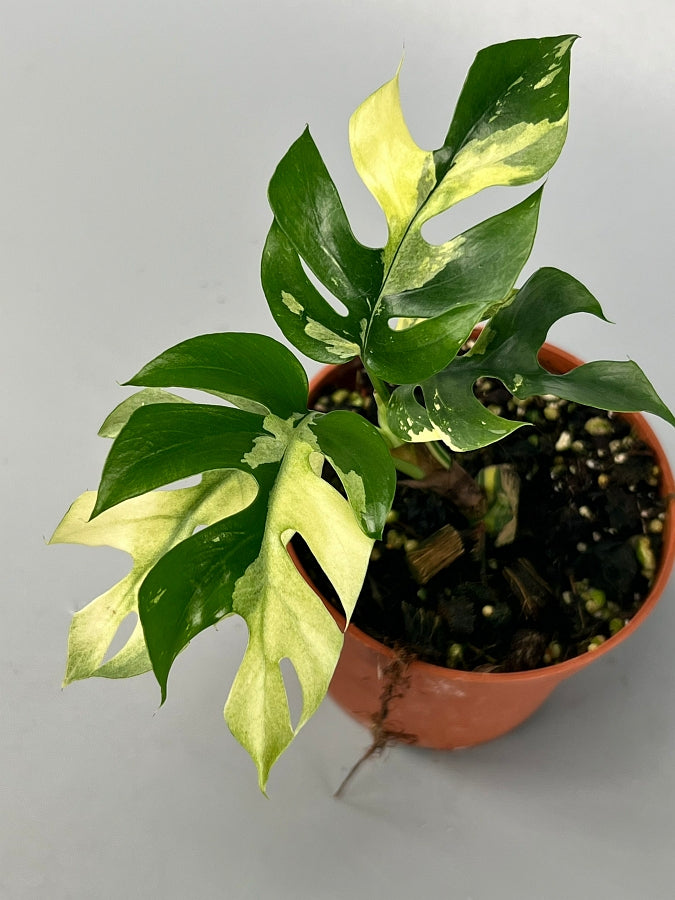
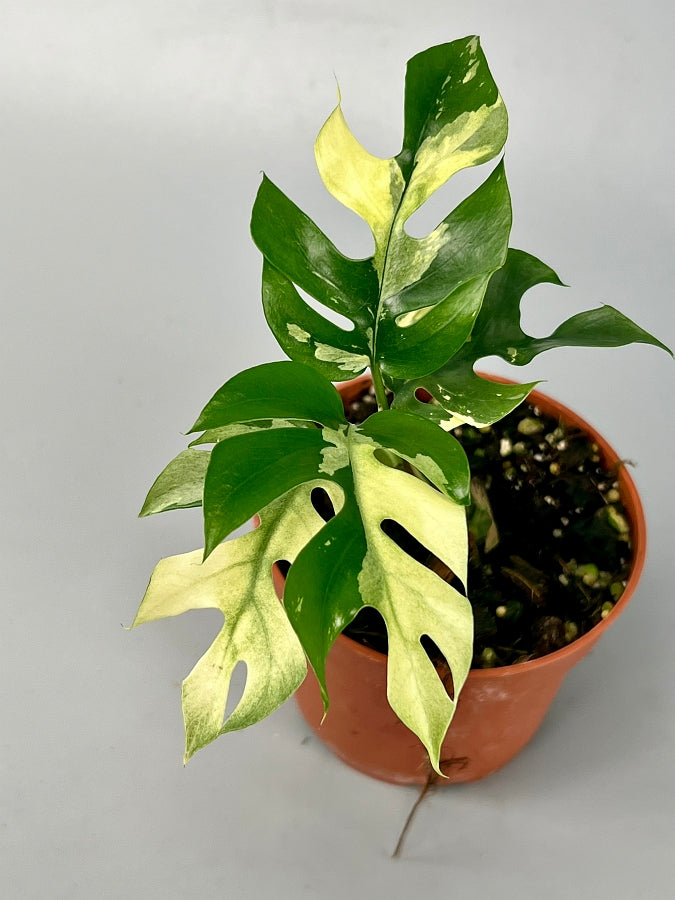
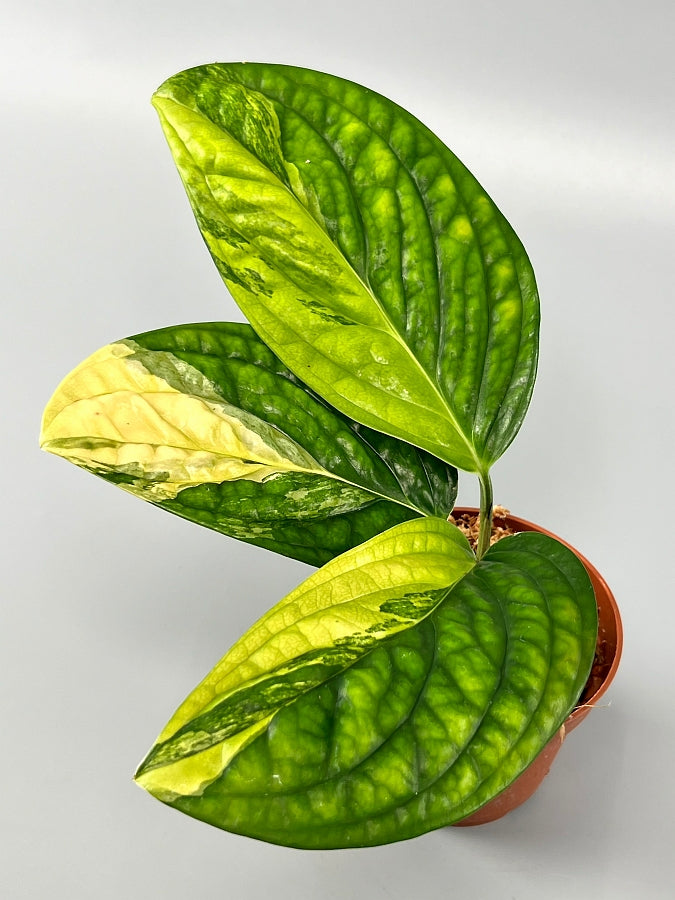
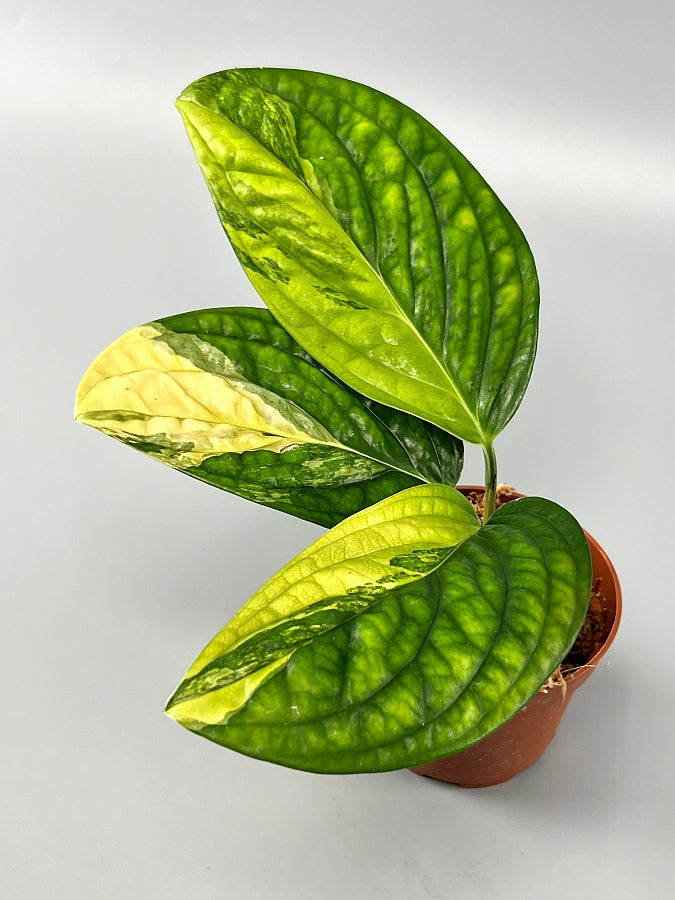
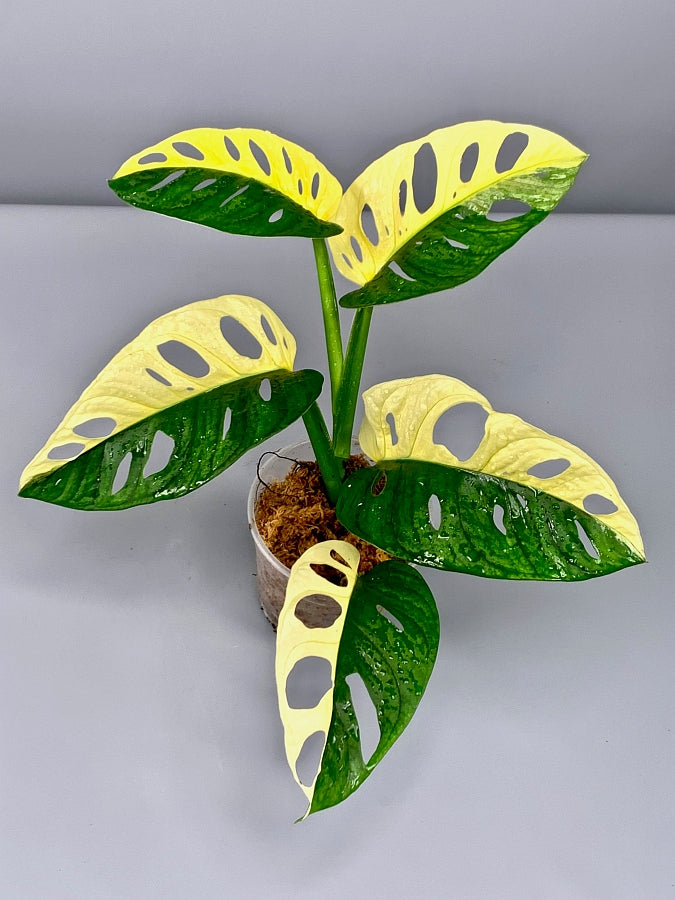
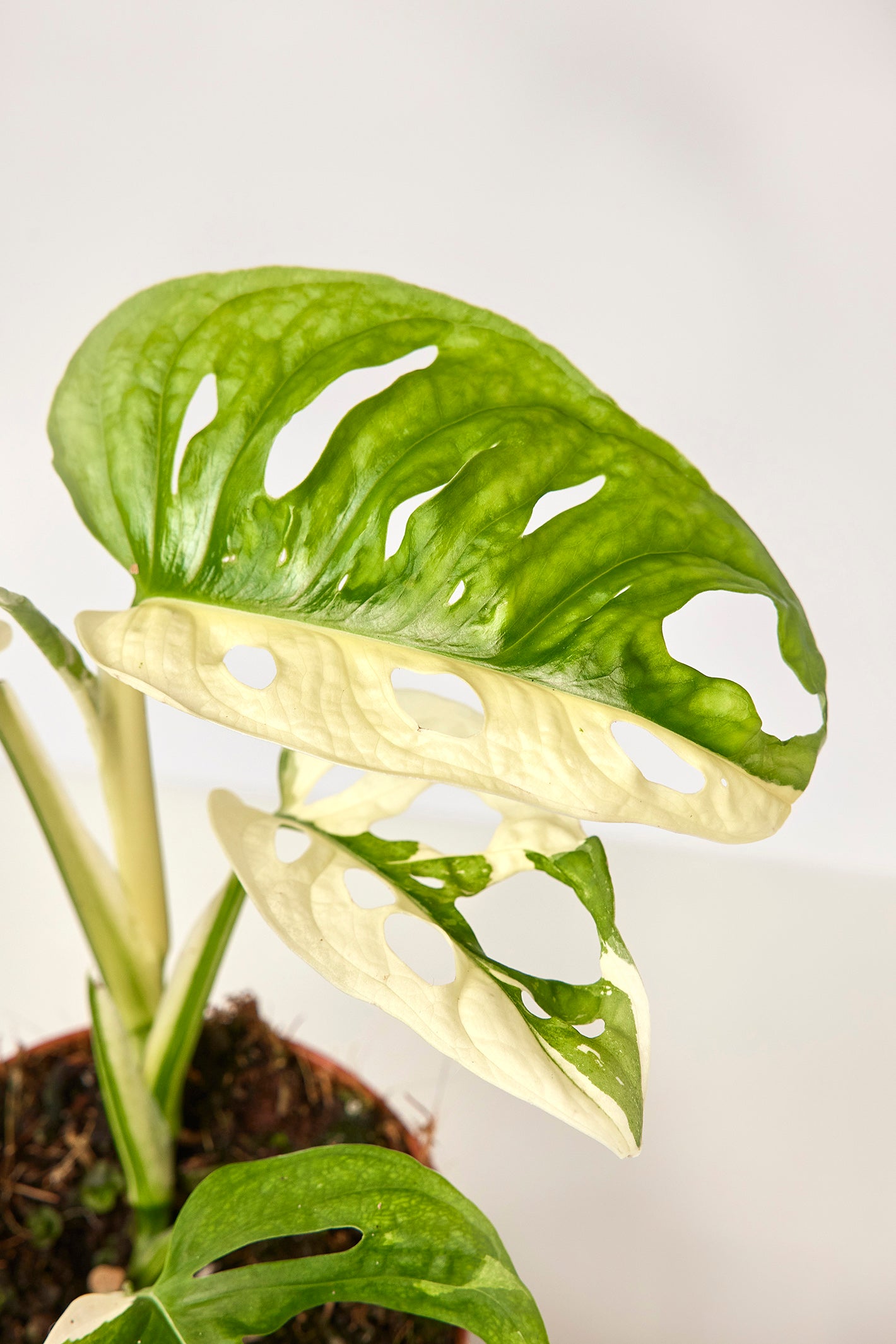
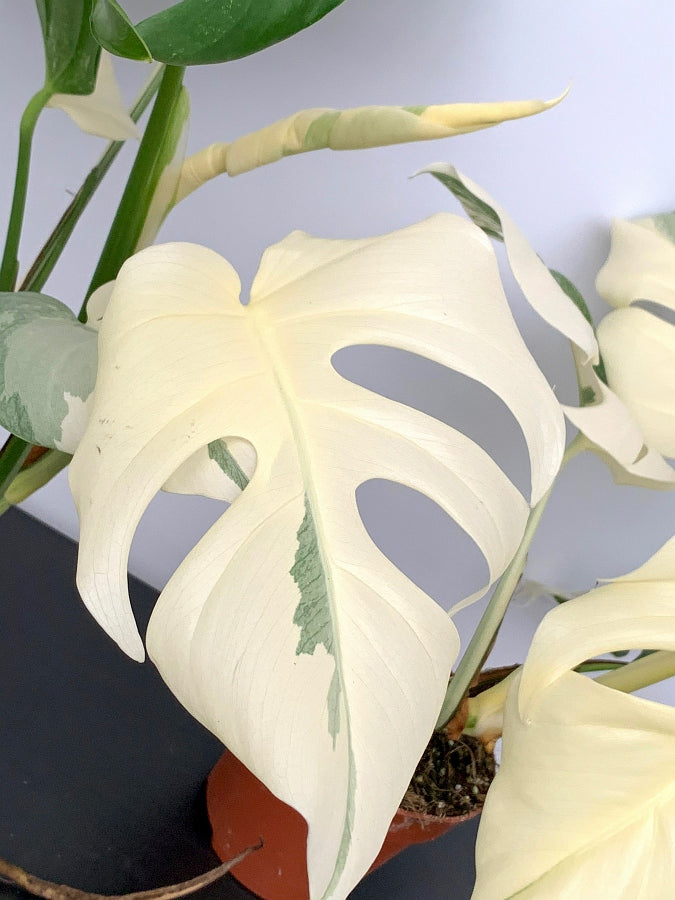
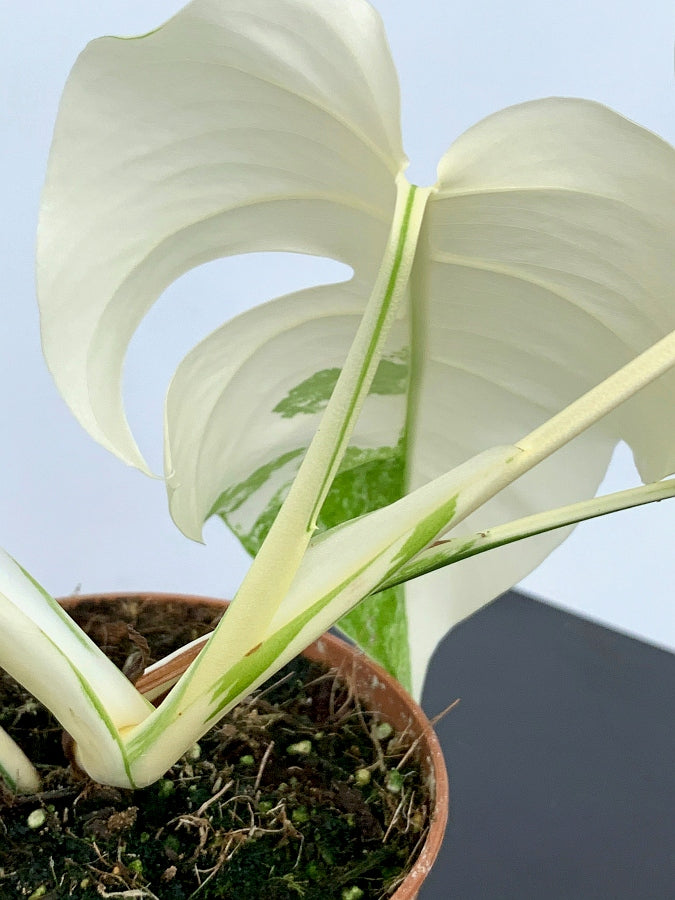
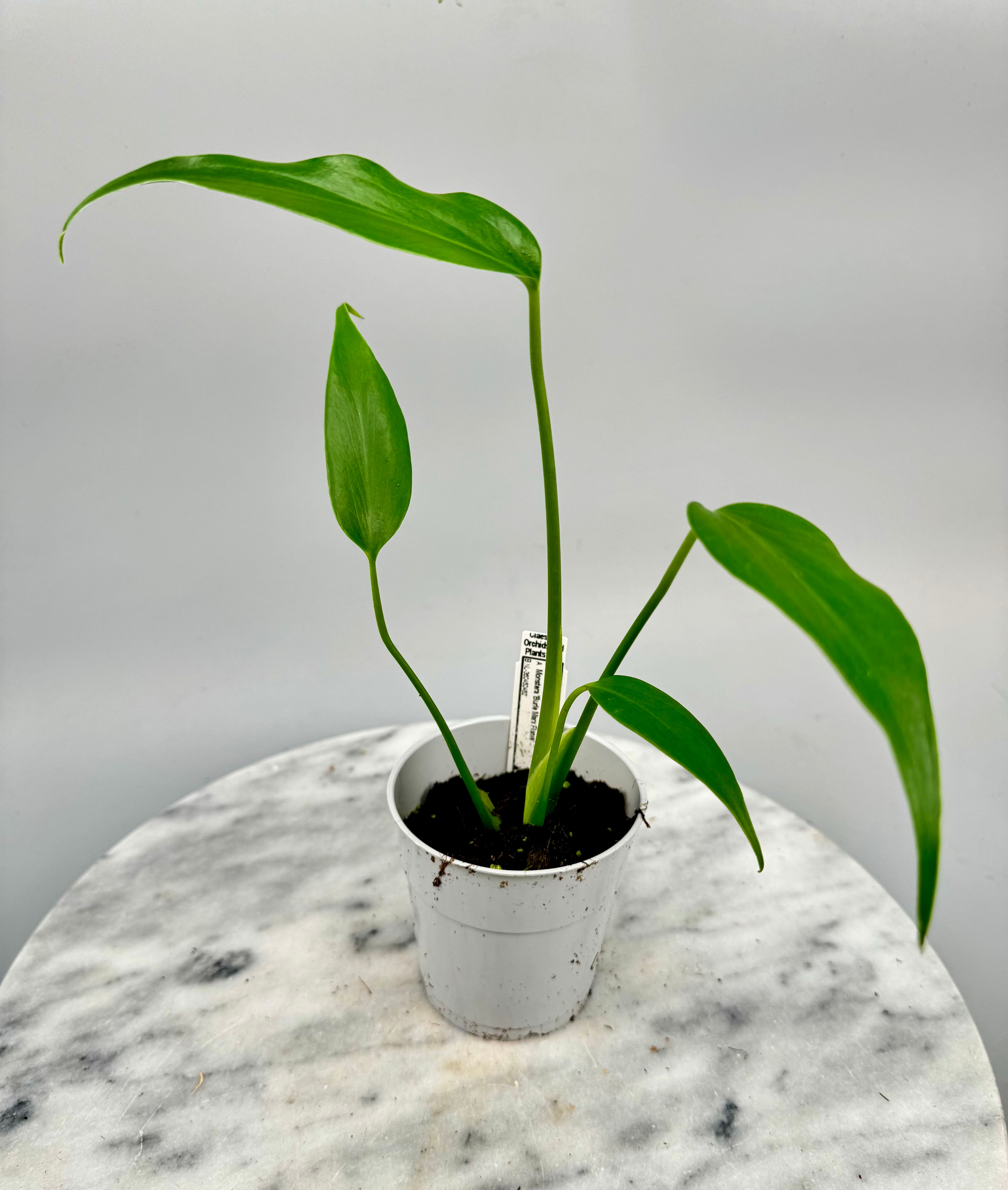
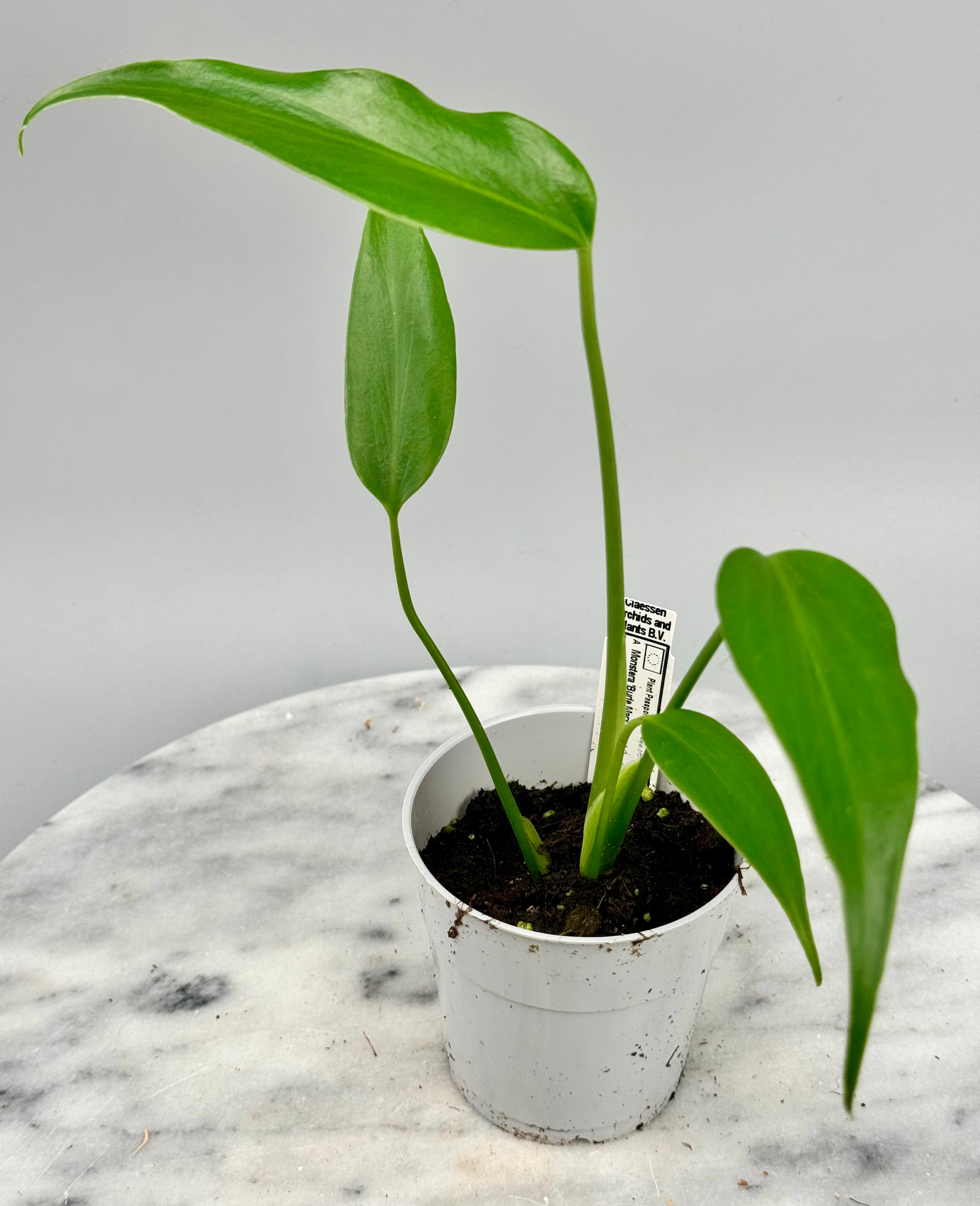
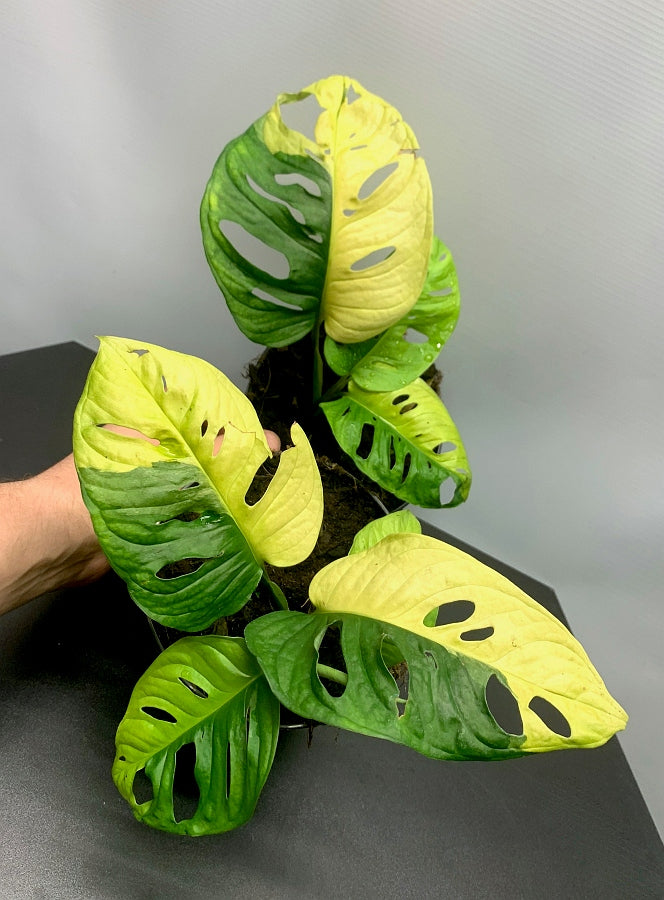
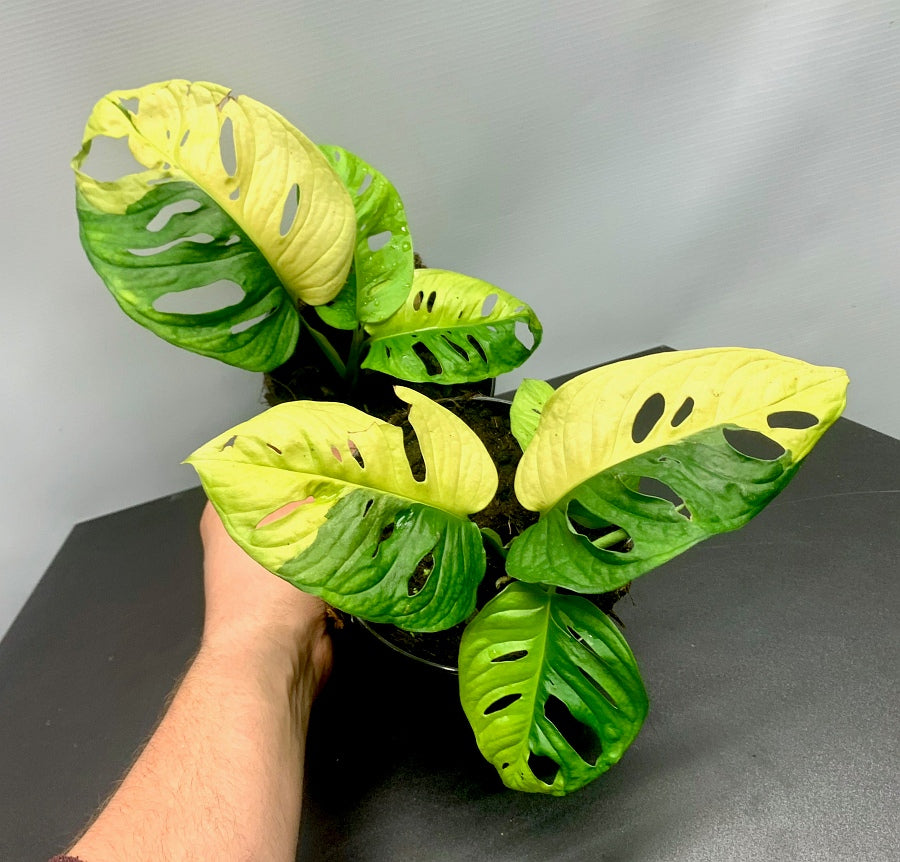
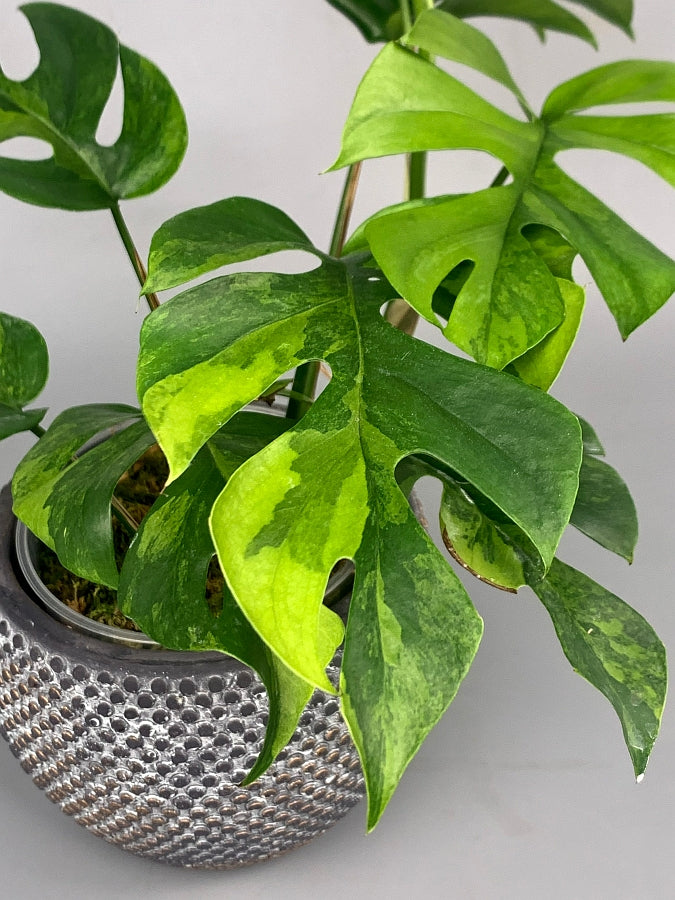
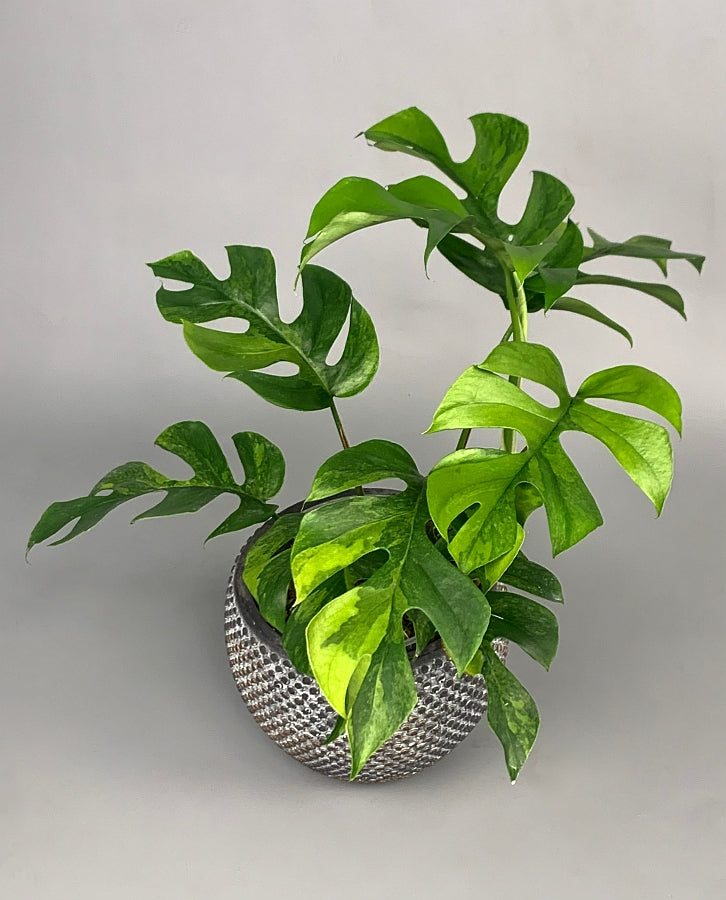
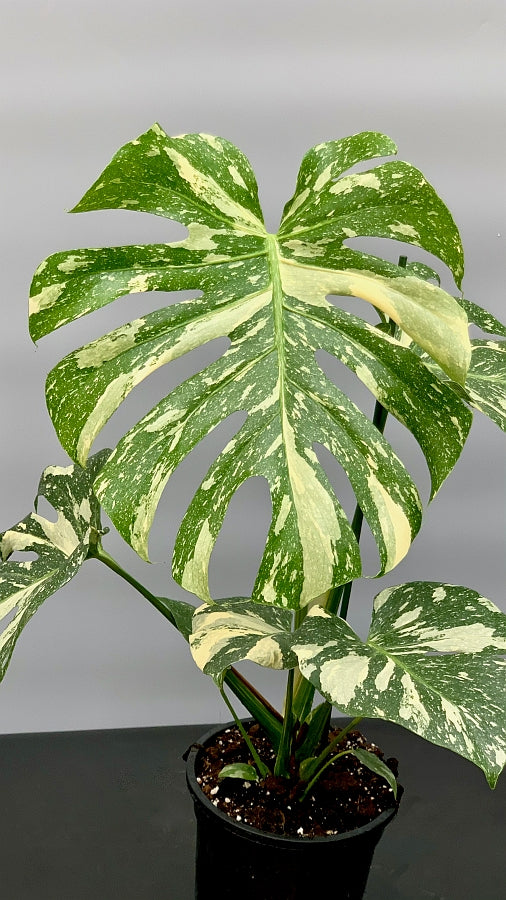
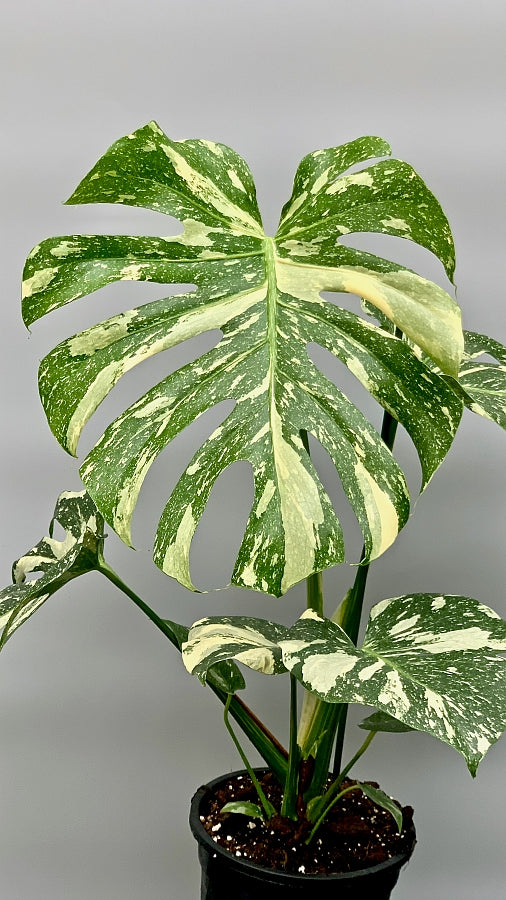
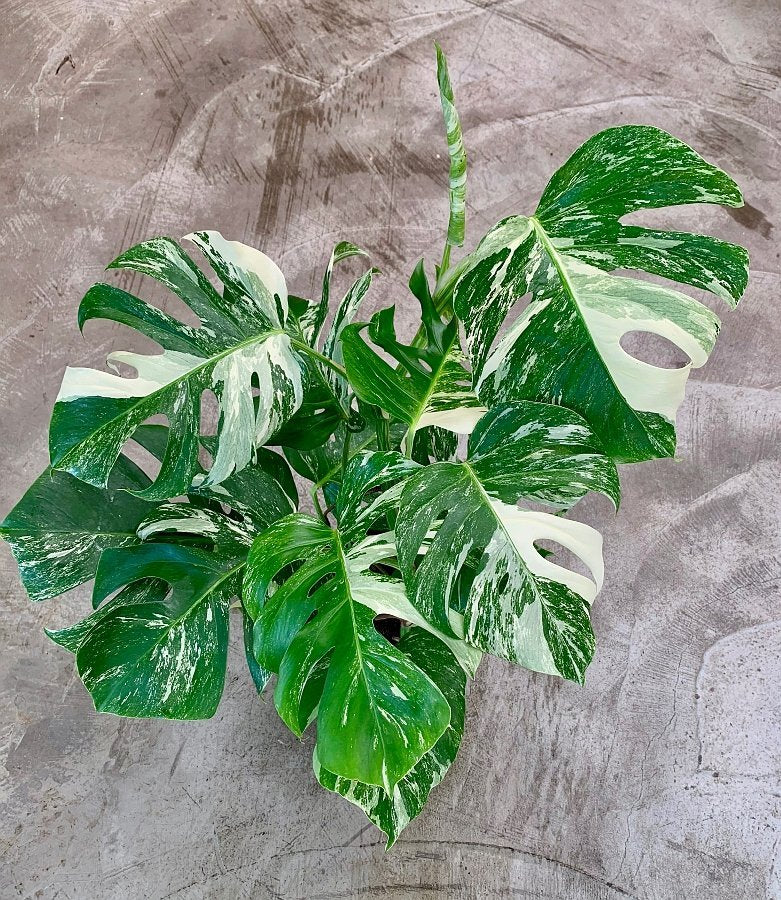
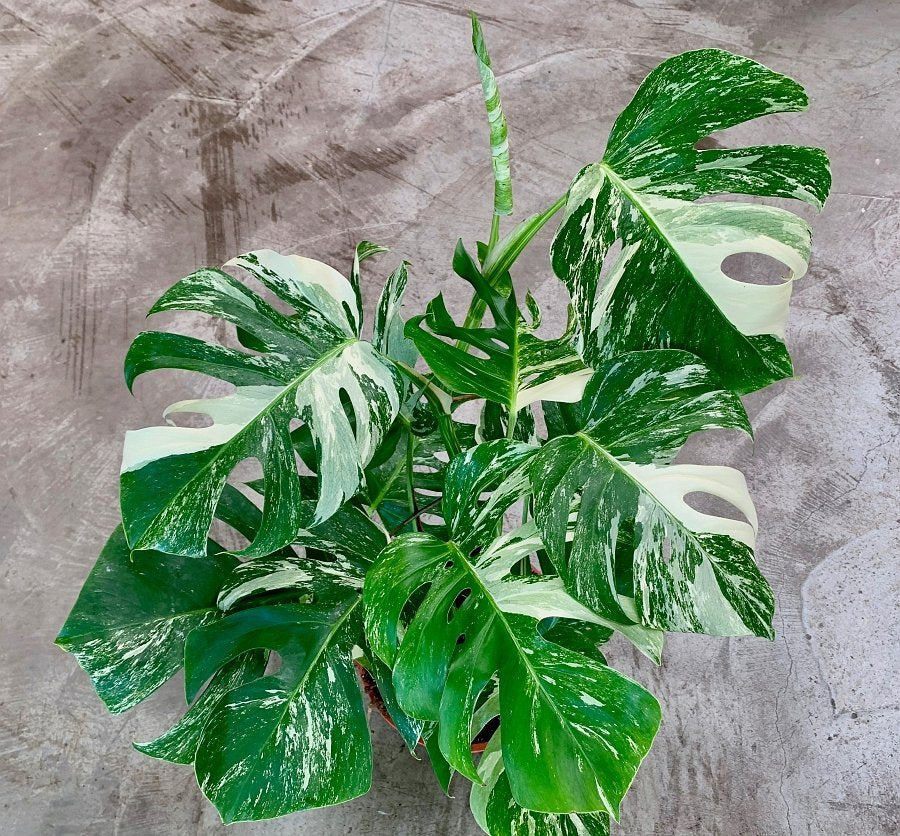
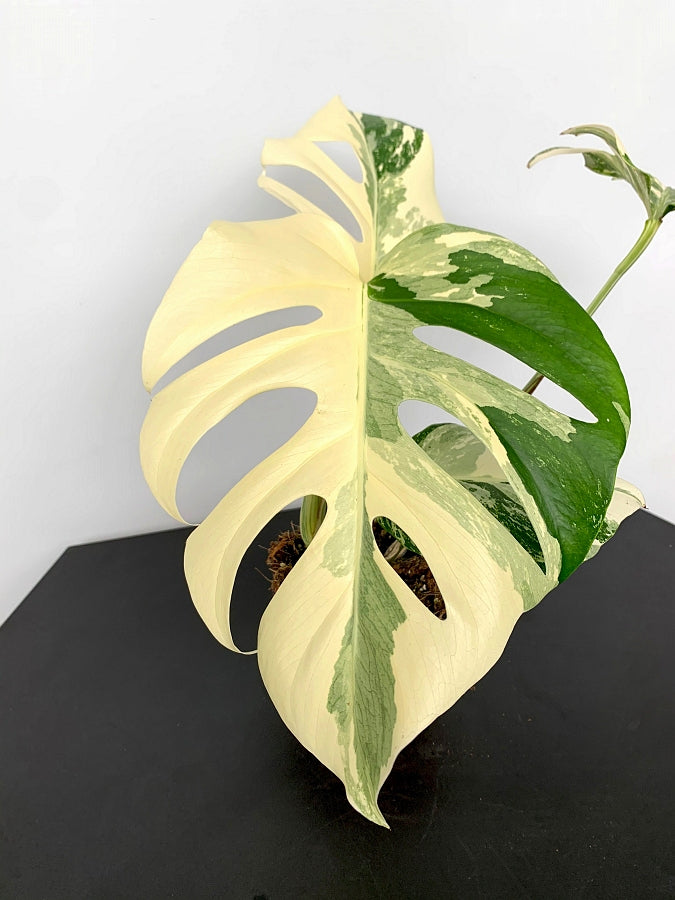
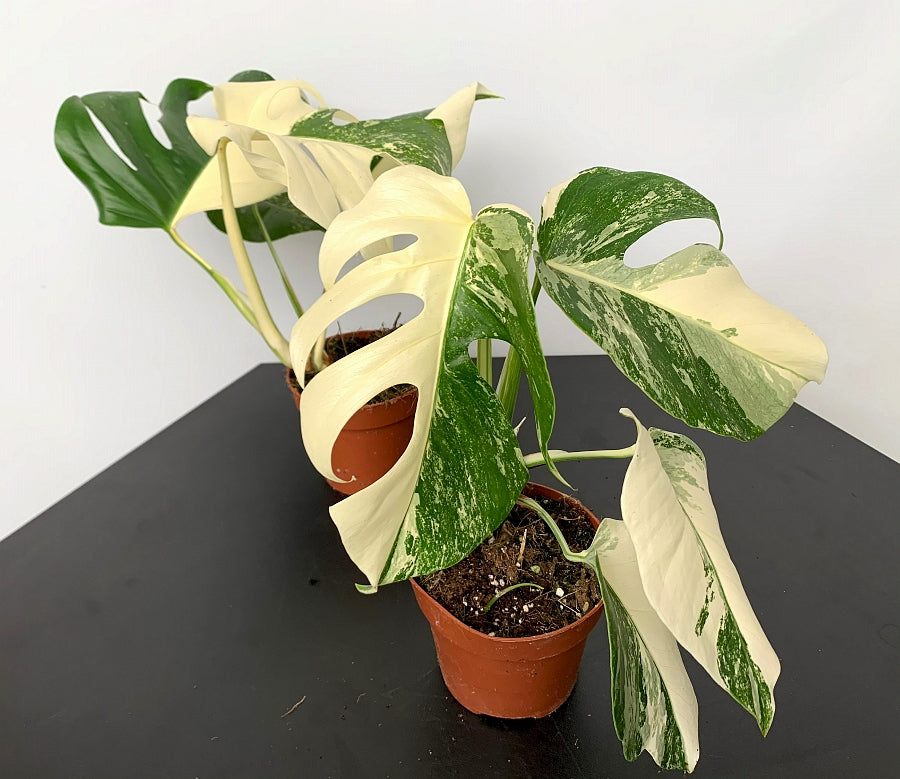
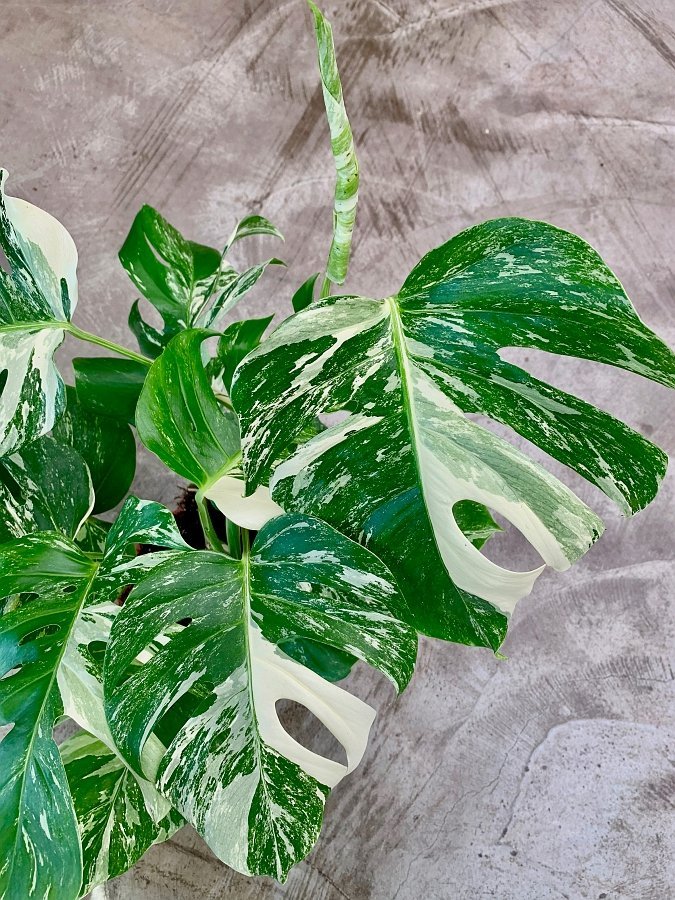
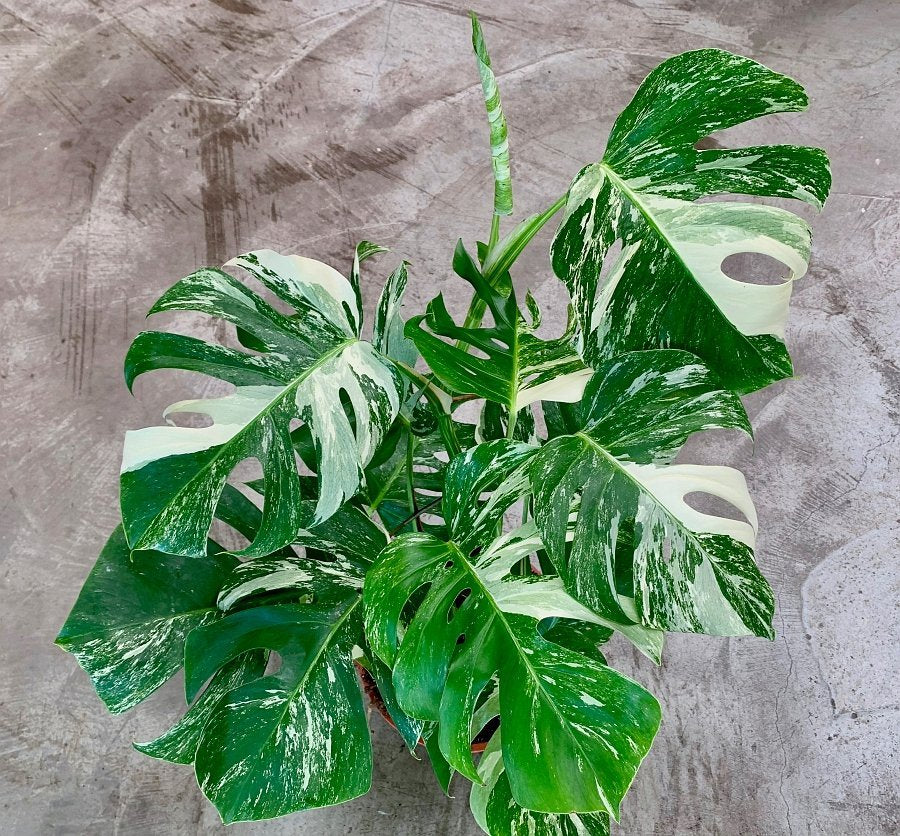
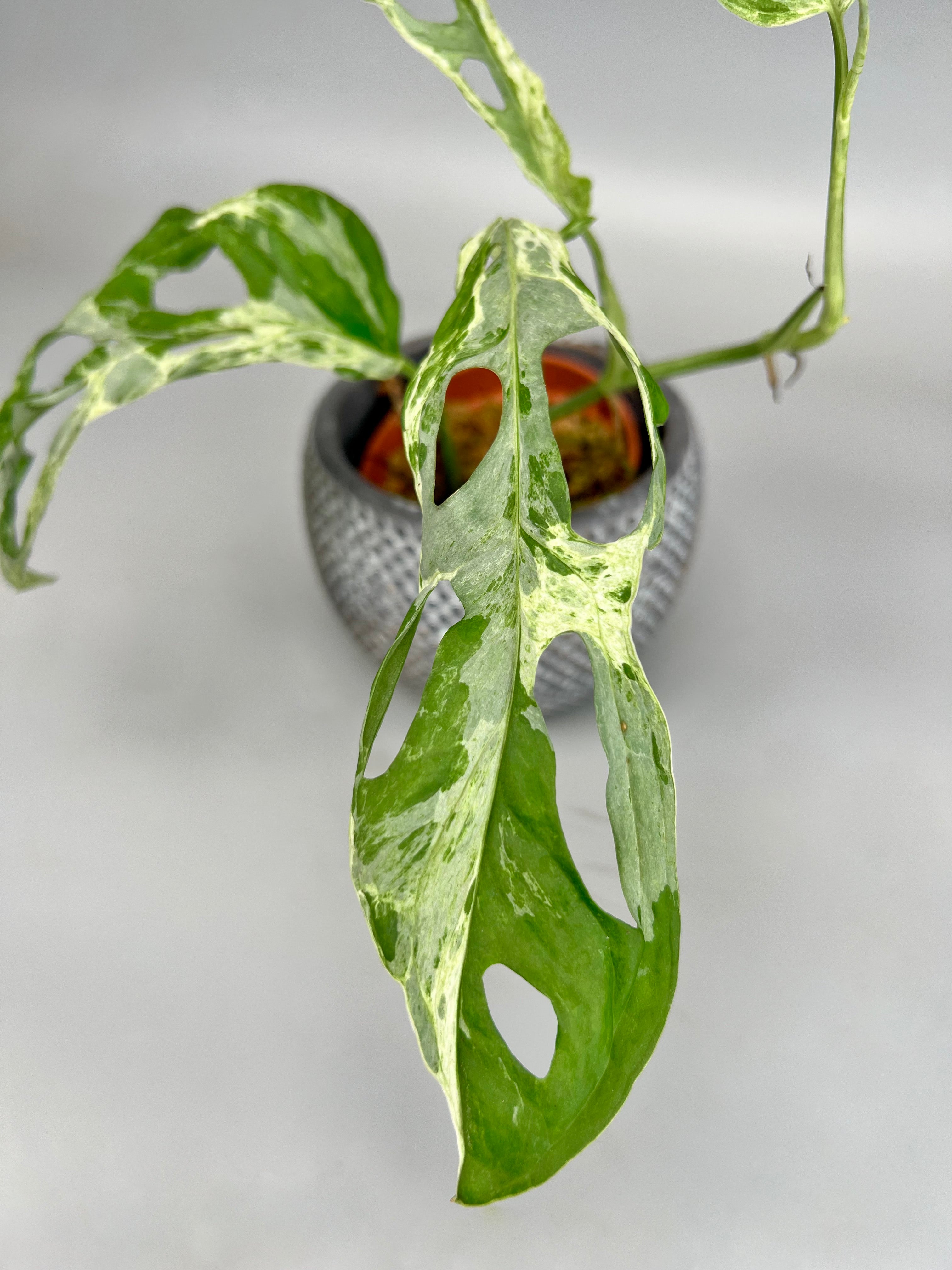
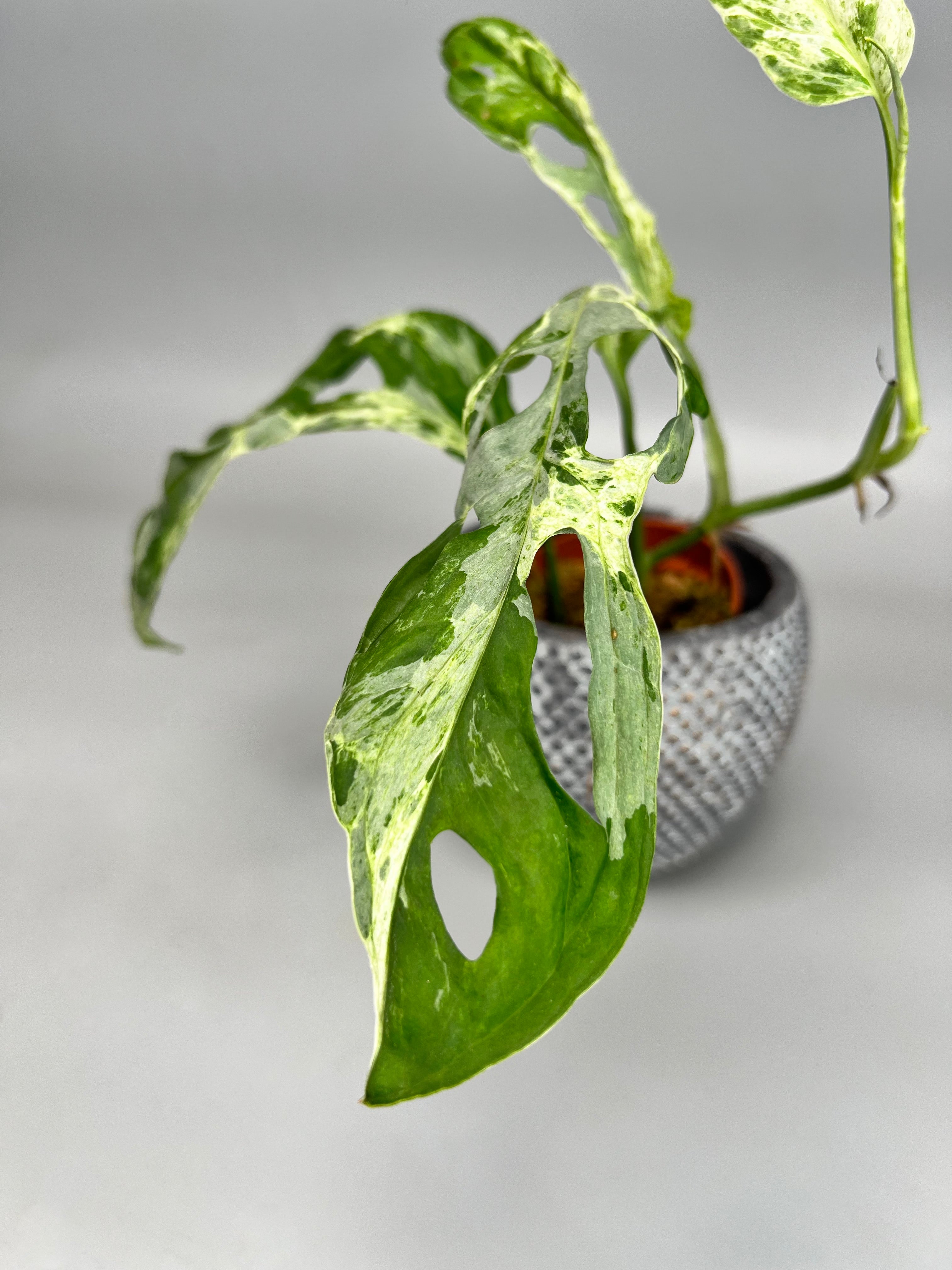
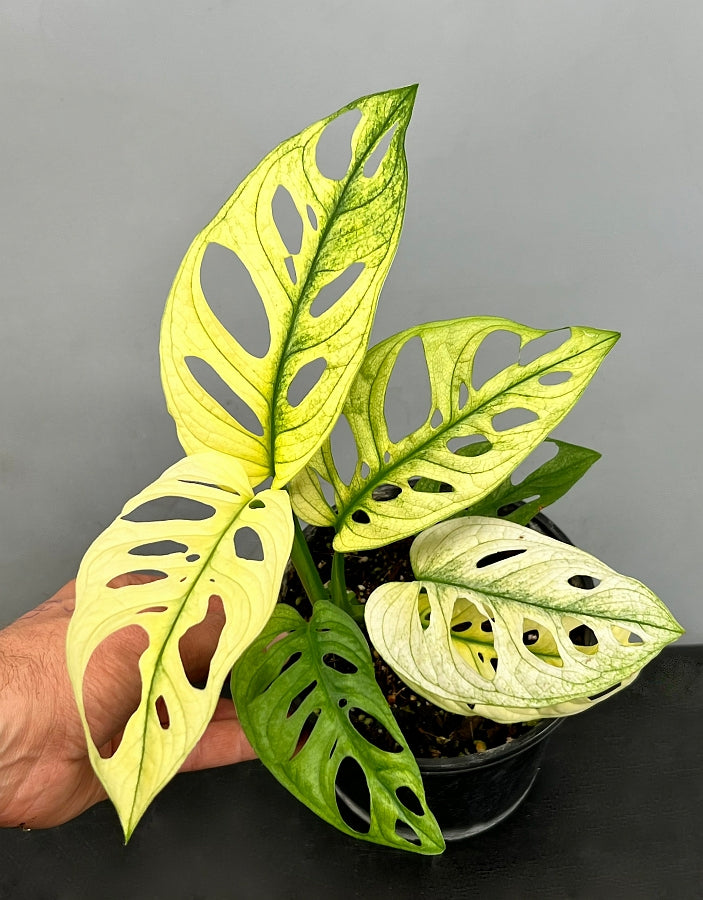
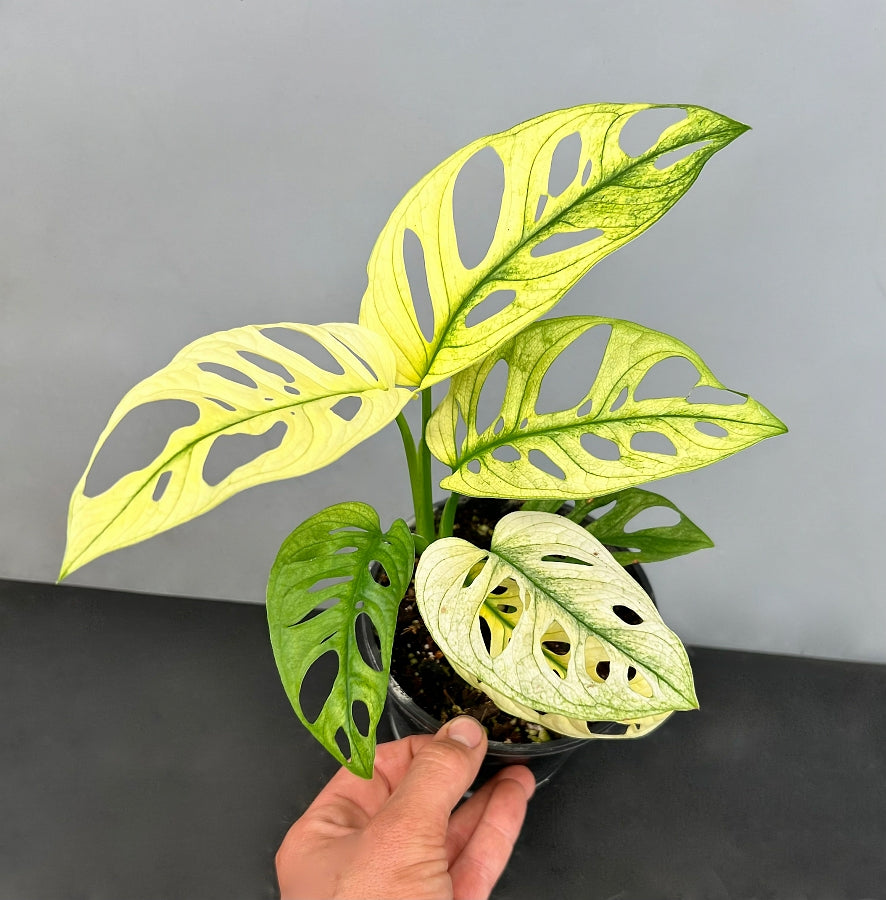
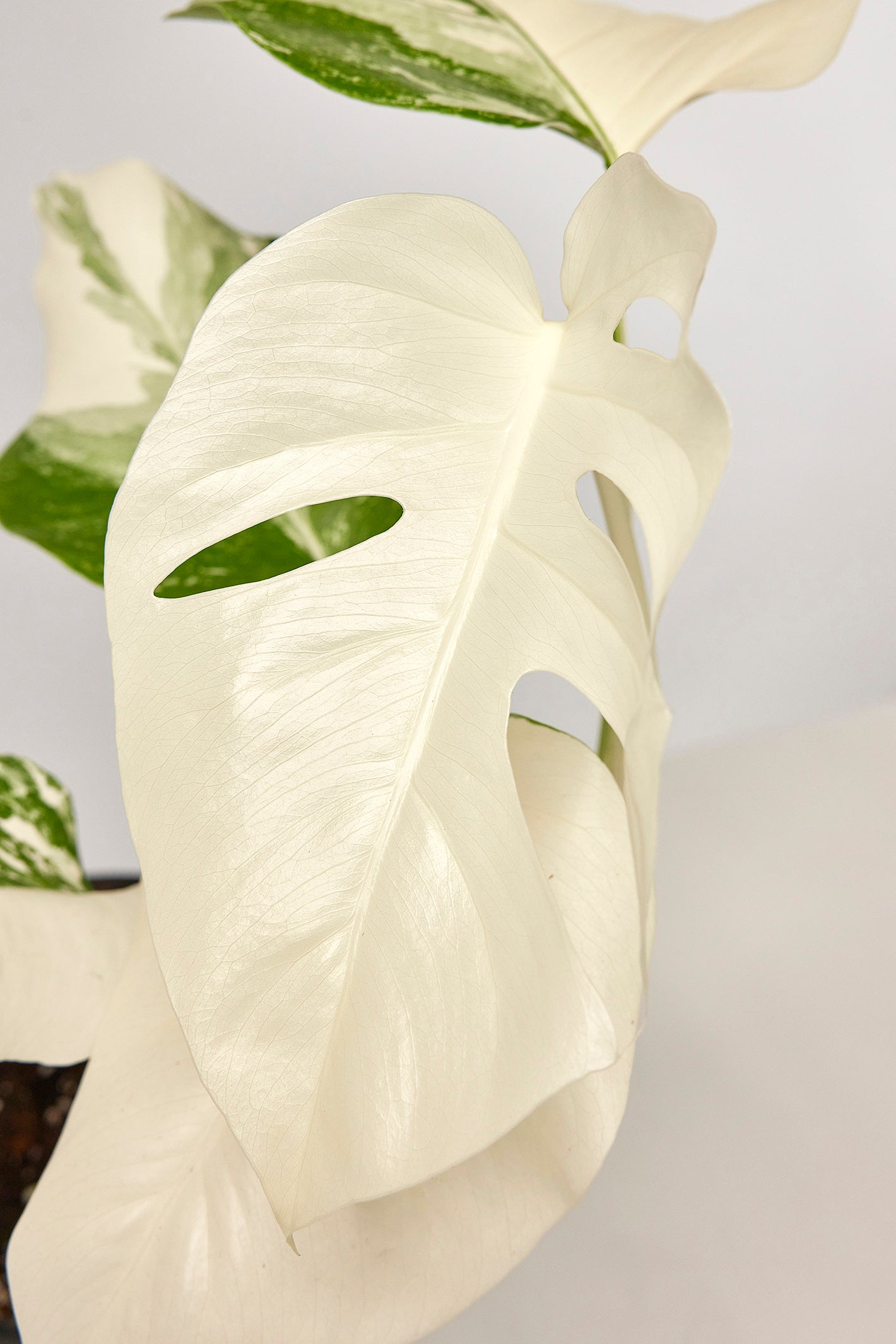
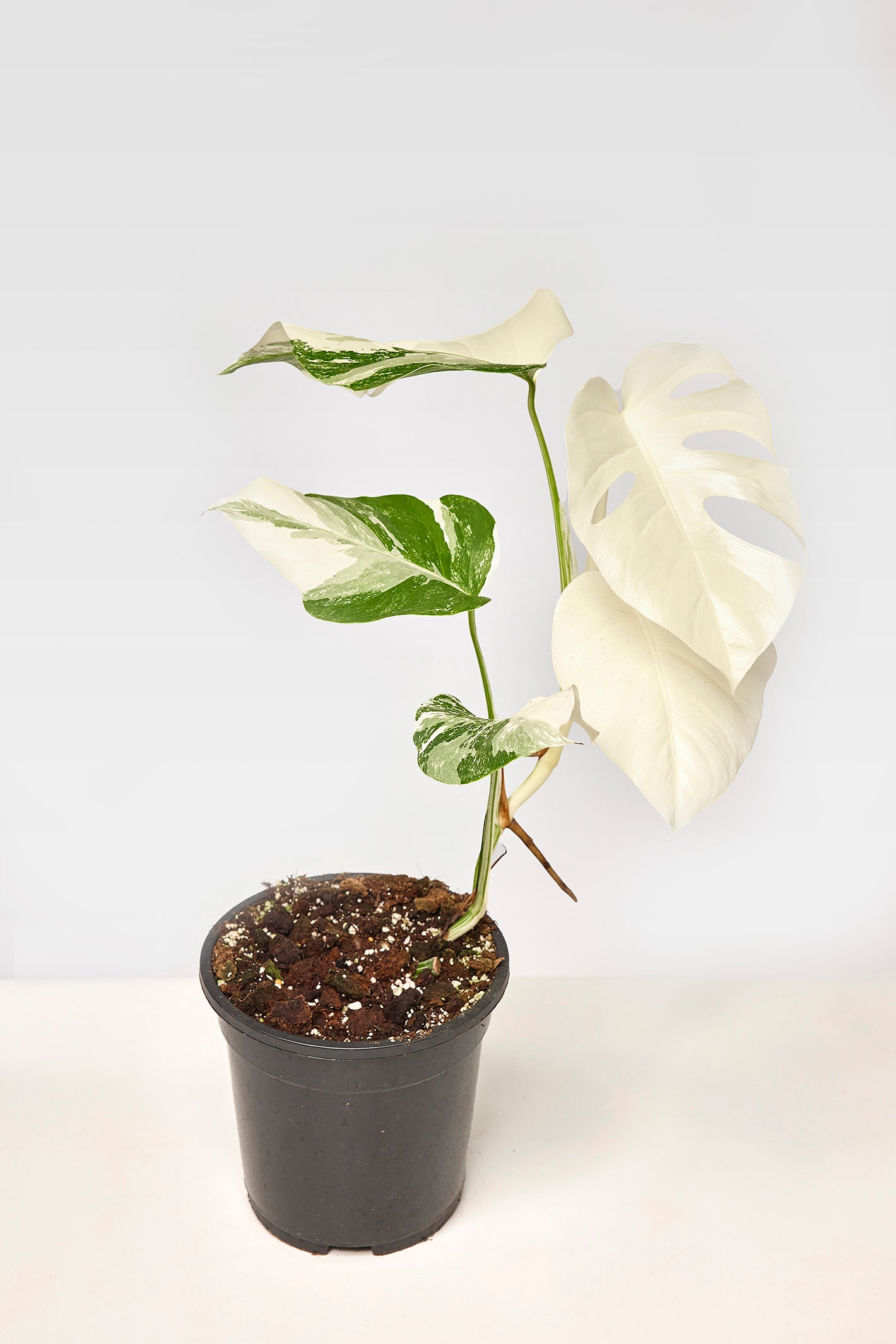

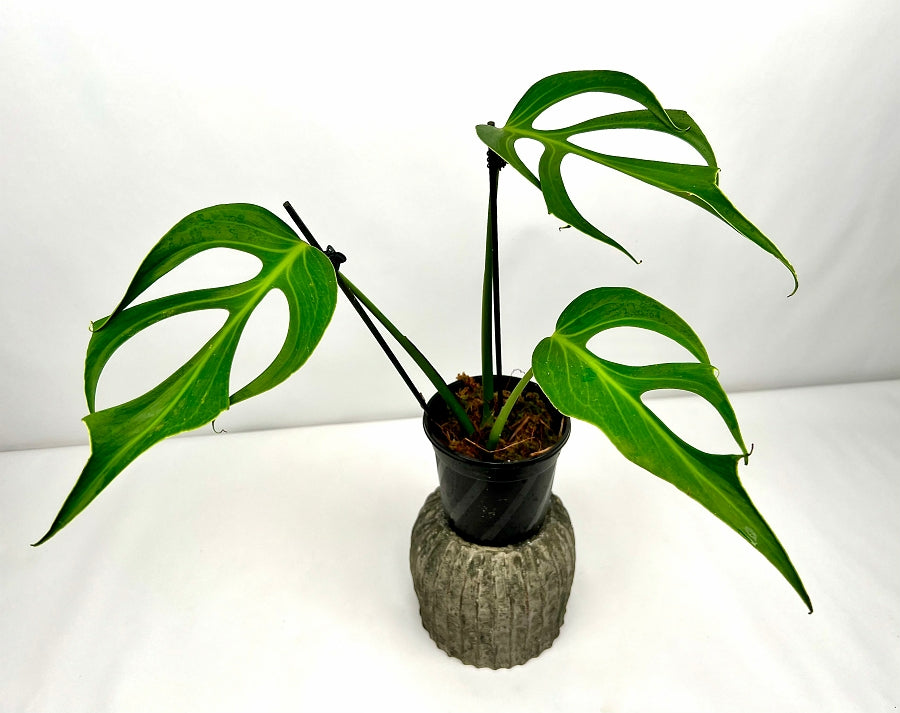
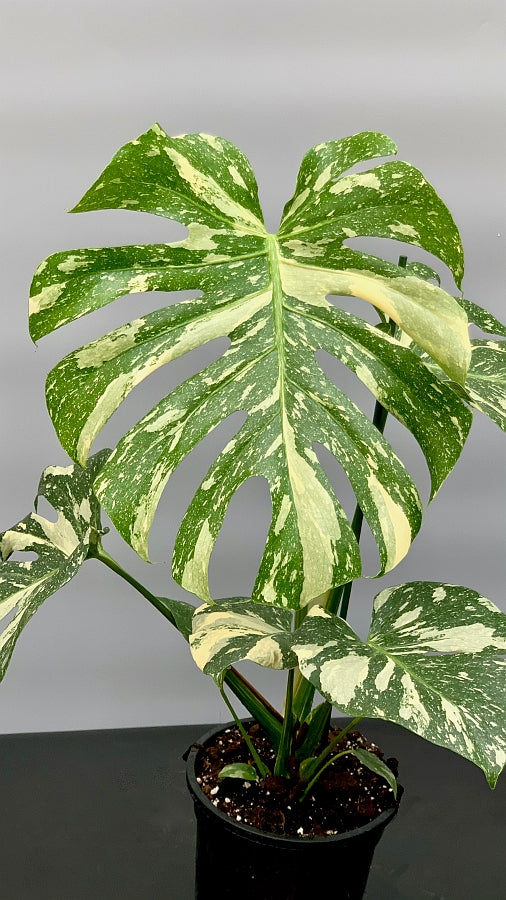
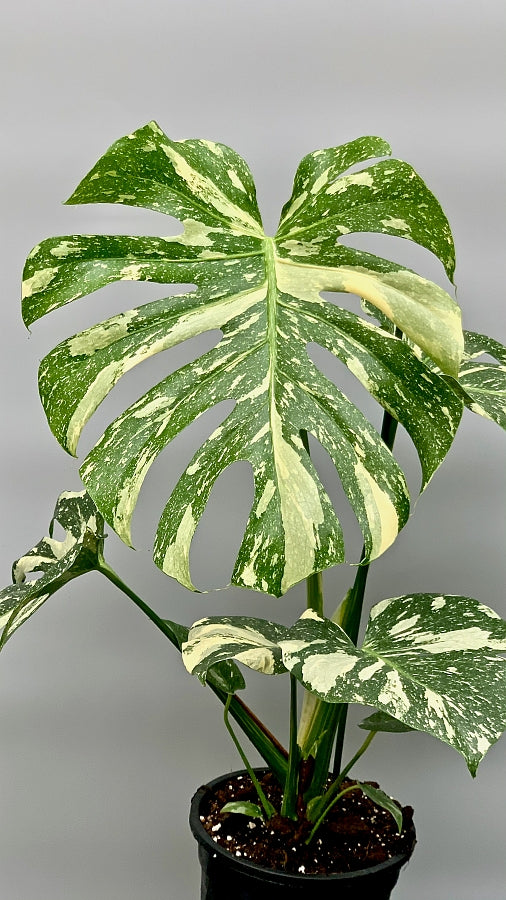
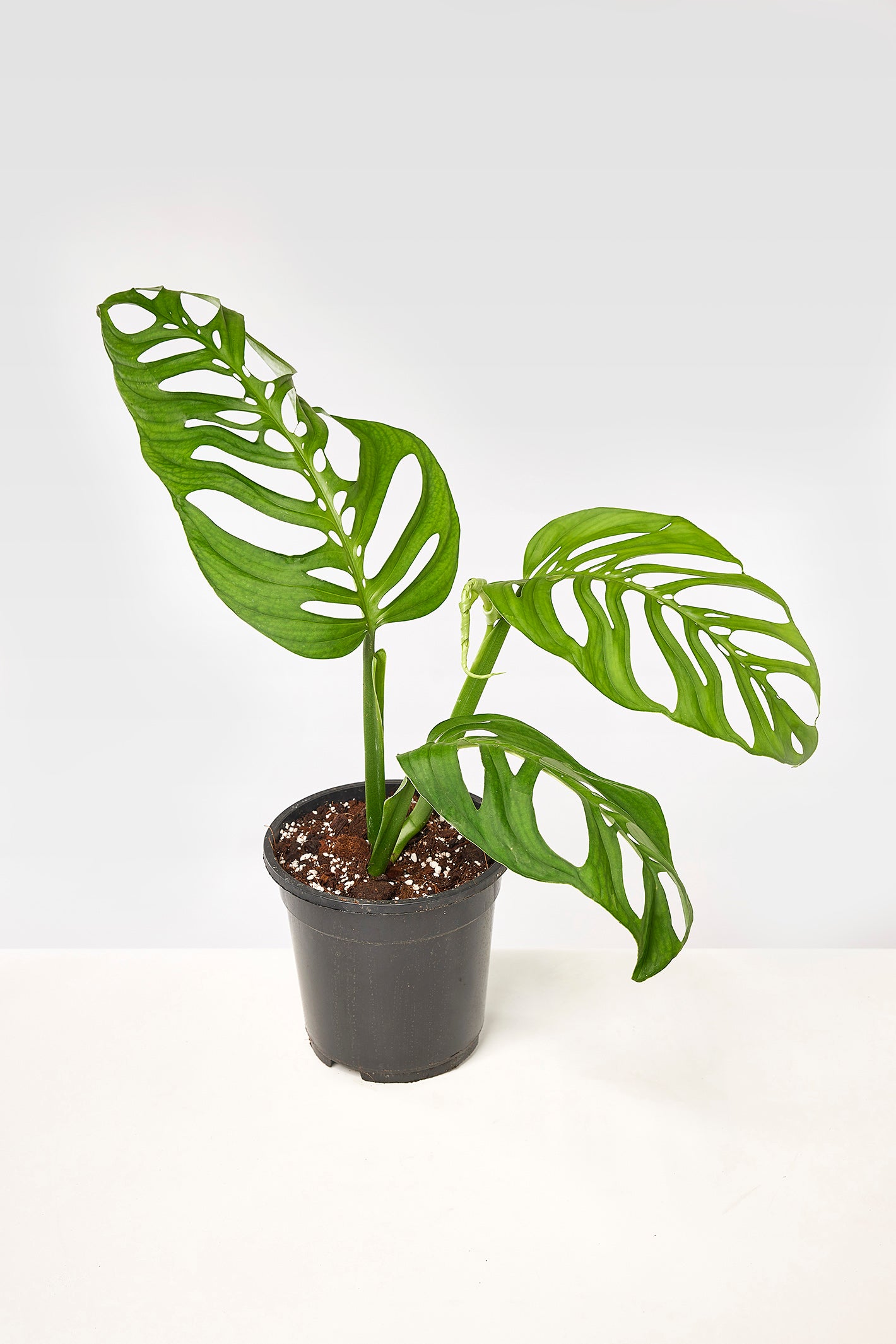
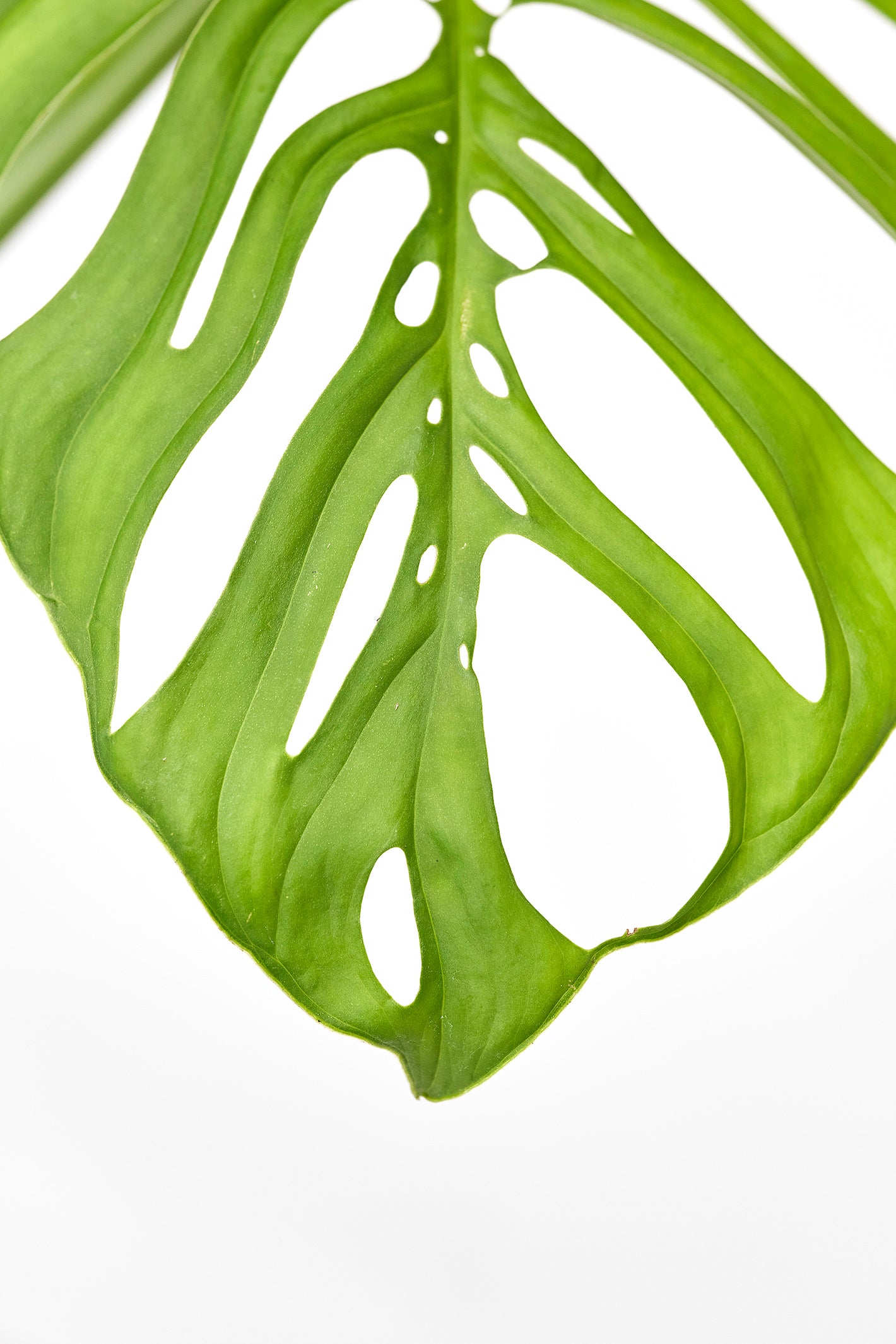
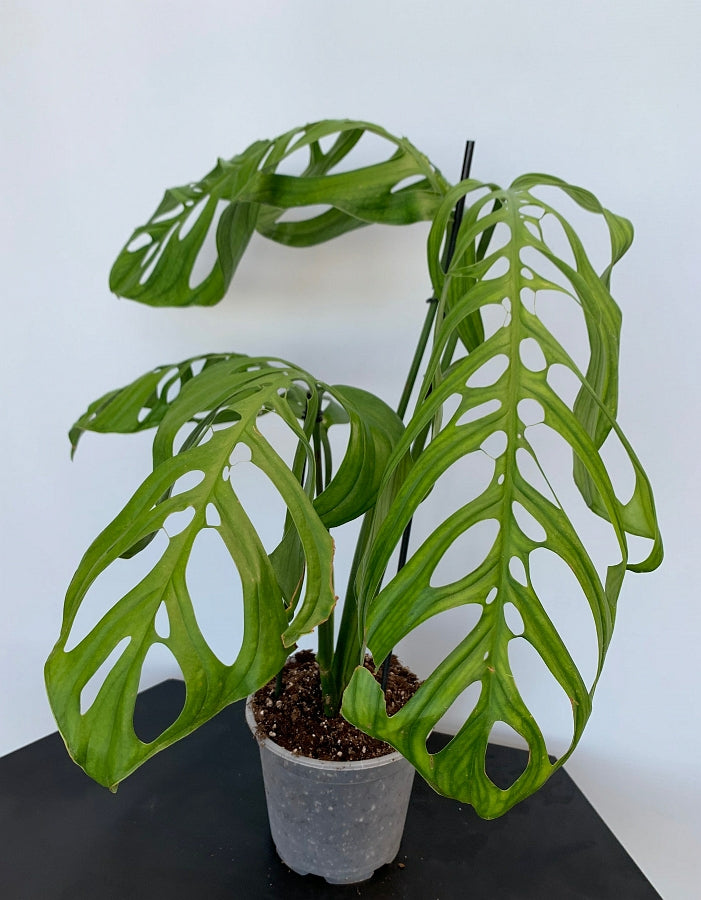
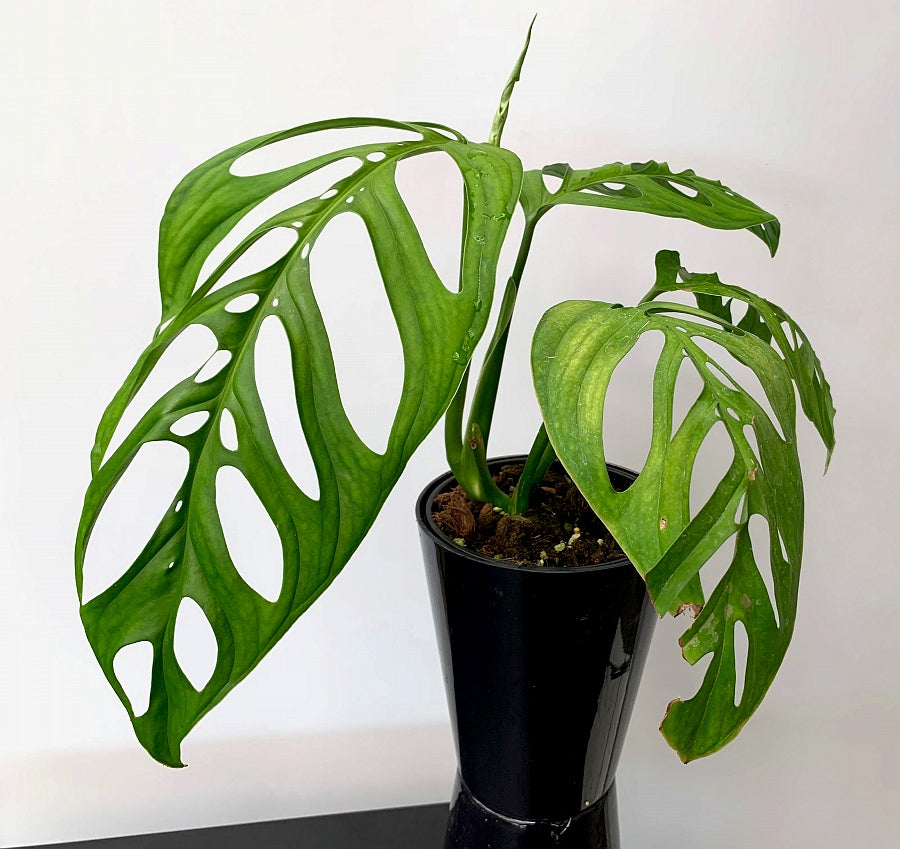
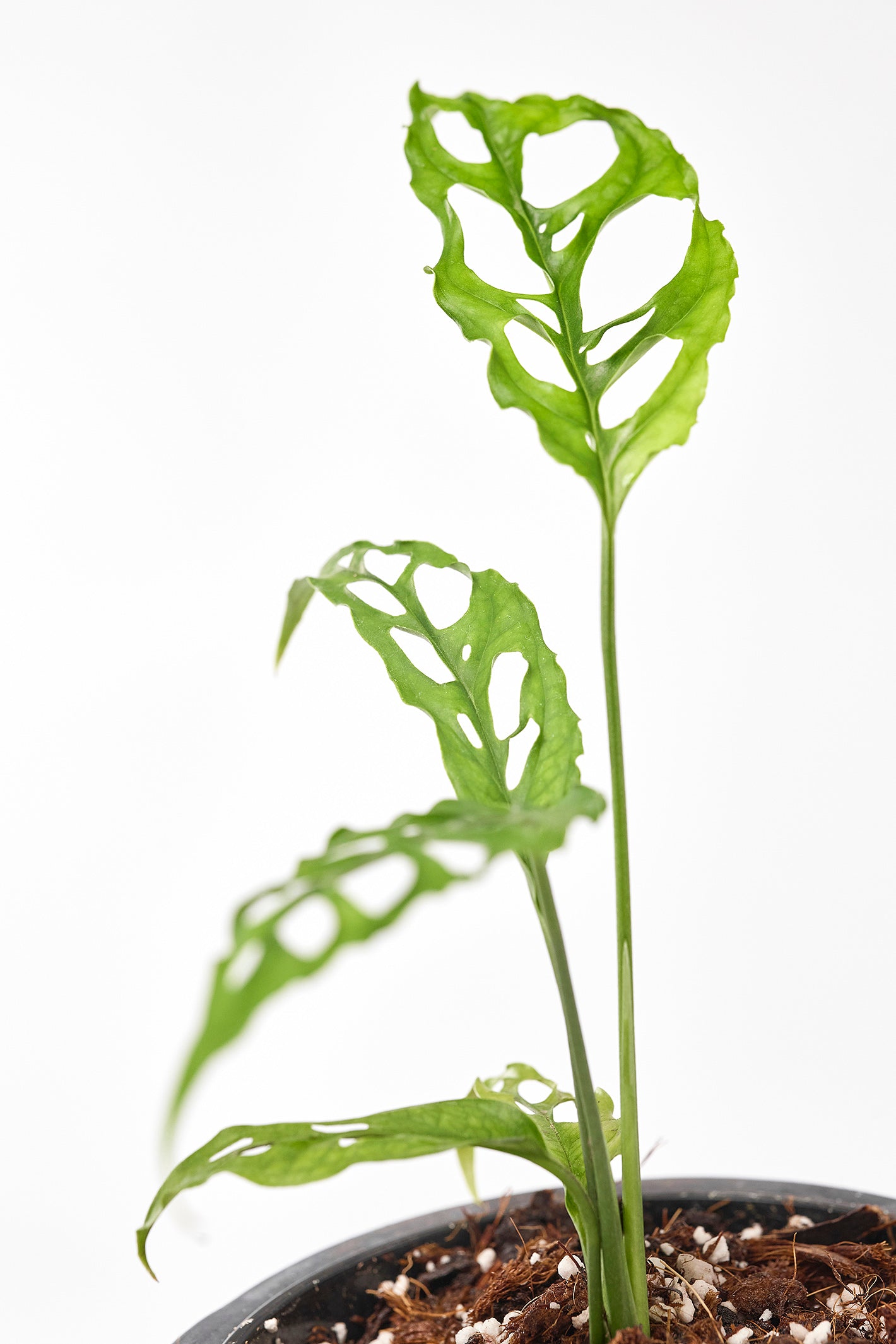
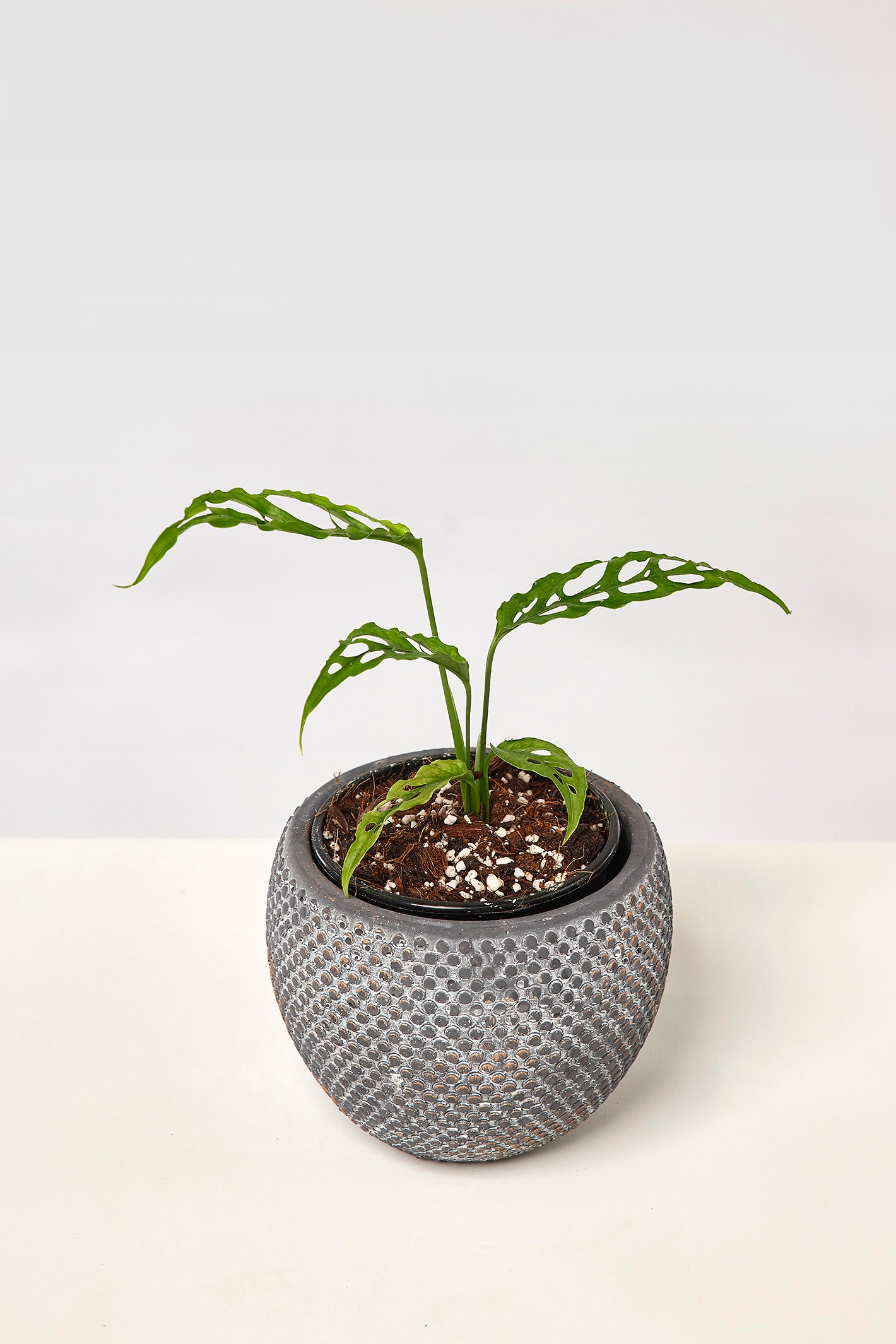
Recent bekeken
The Monstera is a tropical houseplant in our stock, which is particularly known for its beautiful leaves. The Monstera Deliciosa Variegata has been one of the most popular plants in our range for a long time. But new special species are added every six months. The Monstera is generally (also as a variagata) an easy houseplant to care for. This comes from the tropical areas of Central and South America. They are green climbing plants that also have the nickname "Swiss Cheese Plant". The name Monstera is a Latin word for "monstrous" or "abnormal".
Ordinary or with stains
For both the starting plant lover and the professional or experienced collector, the Monstera is an eye -catcher in the collection or living room. The Monstera deliciosa is one of the most famous and popular species of this. Various variety types are available, such as the Monstera deliciosa Albo, Monstera Thai Constellation, Monstera Deliciosa Varegata Aurea and the Monstera deliciosa Varegata Mint. All these variants are VariGata mutations of the Monstera Deliciosa, which originated from a mutation in the DNA. For this reason, these variants are also very coveted. But the Monstera Adansonii or the Monstera Obluqua Peru also has Variegata versions.
Care
Strong plants
For most Monsteras, they are fairly easy in the care and tolerant of both light and water composition and temperature. With mutated, varietal versions, it is often a bit more difficult, because because of a lack of leaf green granules they miss some firmness in the magazine, making them more susceptible to diseases and have more difficulty getting energy for growth and water management. On the other hand, almost all Monsteras are climbing plants, so that they can easily grow in certain desired shapes and against different materials, such as moss sticks or pieces of wood.
Sunlight
Most monsteras need a place in many to medium indirect sunlight and do quite well in different places in the house. They are all sensitive to burning in the leaf with direct sunlight. With Varegata versions or more difficult species, it is important to put the plant in some fierce indirect sunlight. So it may differ slightly by species. With hot and long summer days it is important to provide the water with sufficient water and the humidity to raise the plant a little by, for example, spraying. In this way the plant does not dry out. Varegata plants need more indirect sunlight, but must also be well protected against burning. A good balance is therefore important for optimum growth.
Water: quantity and quality
The water dose is about the same as that of the Philodendron. The top of the pot may dry quite far before water is given and at the bottom of the pot it must be slightly moist. There are some differences in what species in terms of quantity of water like to get. The Monstera Obluqua Peru can stay a bit wetter and be sprayed more often than the Monstera deliciosa, for example. In addition, some species are sensitive to the quality and composition of the water and the nutrients in it. (Clean) rainwater at room temperature is always the safest option. The Monstera Adansonii Variegata can react somewhat sensitive to poorer quality water. Tap water is never actually good for a tropical houseplant due to, among other things, the too high level of calcium and chlorine and the change in it, but some stronger Monstera plants survive it.
Temperature
Many monsteras are tolerant in terms of temperature and can be put in both a warm and a cold place. Yet there are a few rare species that like to be placed a bit warmer, such as the Monstera Obliqua Peru and some Variegata versions. A cool space is usually around 16-20 degrees Celsius and a warmer room is usually around 23-26 degrees Celsius during the day. Many monsteras with varegata suffer from extreme heat and can then get damage to the leaves (in particular in the Varegata stains there is the first expression of heat stress). It is then important not to put the plants in air conditioning, but to spray much and to switch on a fan. That way you prevent leaf damage due to heat on the hottest summer days.
Humidity
Monsteras come from the tropics. That means that they are used to a higher humidity than we often have in modern houses. A humidity around the plant of at least 60% is the advice for almost all Monsteras. For more sensitive species that have to be in a warmer climate, a humidity of 75% or higher is often a better outcome. A small greenhouse or a display cabinet can offer a solution when locally increasing the humidity.
Care per type of Monstera
These were general care tips that apply globally to the Plant family Monstera. On many pages on our website there are also detailed advice per type of monstera together with descriptions of, for example, the natural environment. That way you can give your specific monstera the right attention.
Potting soil and care advice
Monsteras can generally be in a somewhat coarser composition of substrate or potting soil for house plants. In this way the drainage is sufficient to prevent rotting through stagnant water. Many monsteras do not like wet feet too long, because this can cause rotting when the carrots are in the water for too long at the bottom of the pot. Some species require some extra attention. Do you doubt what you can do best? Or are you looking for a special kind? Then contact us! We are happy to help you further. You can easily reach us on the contact page.

